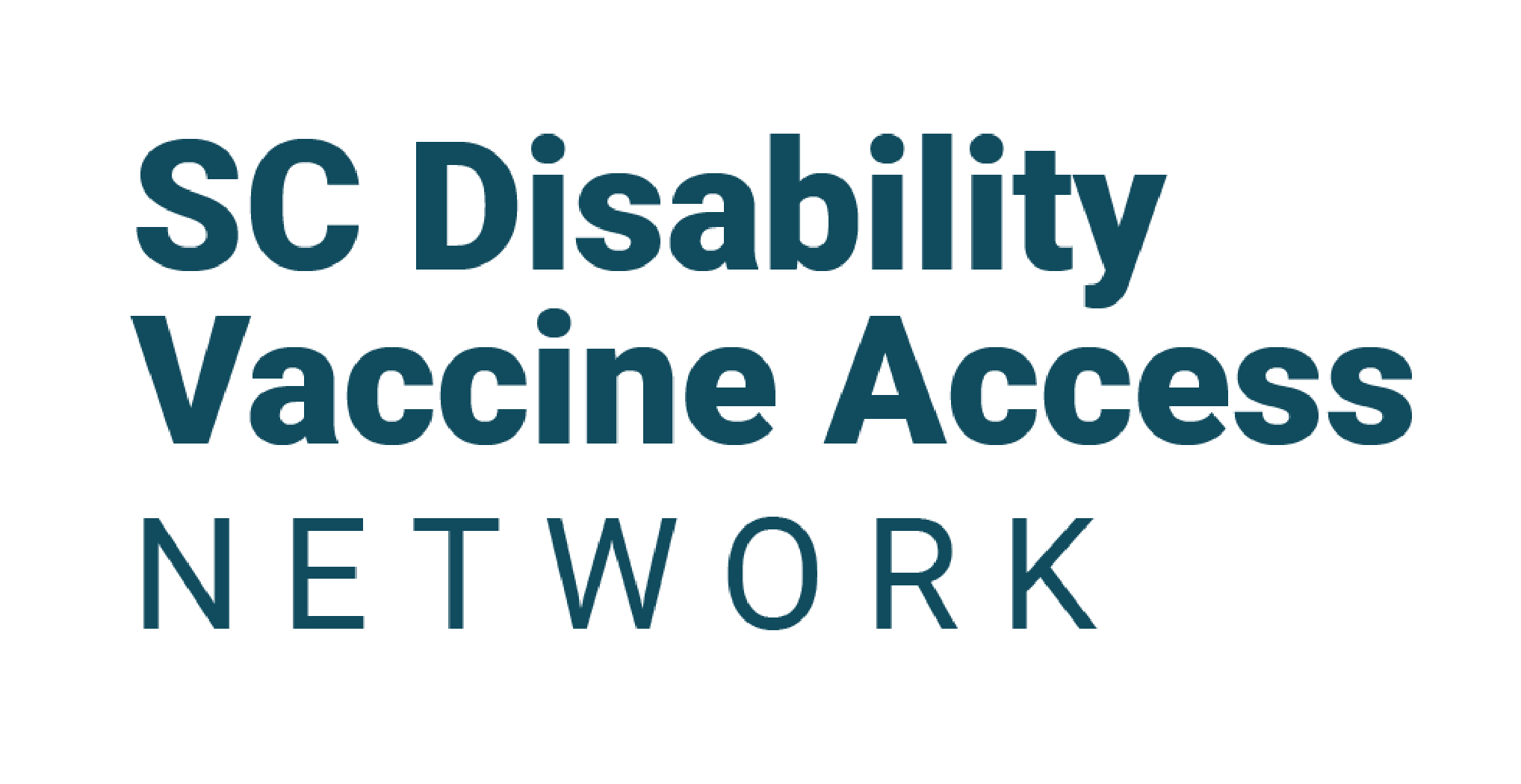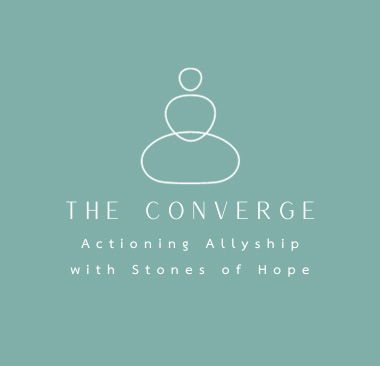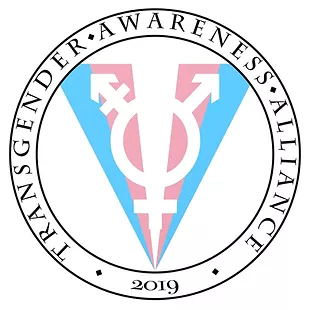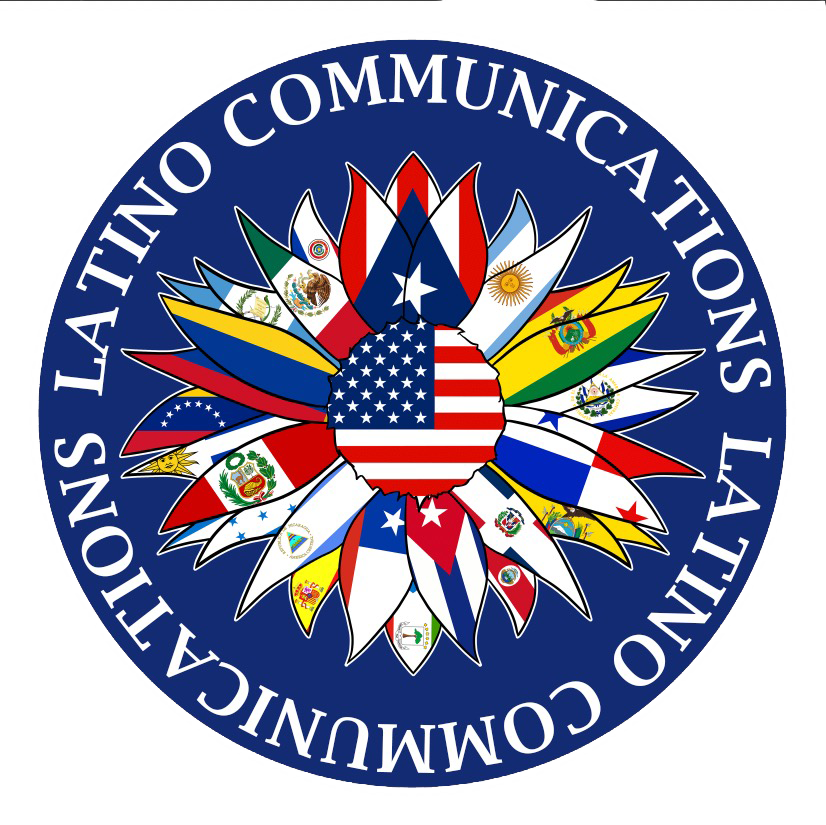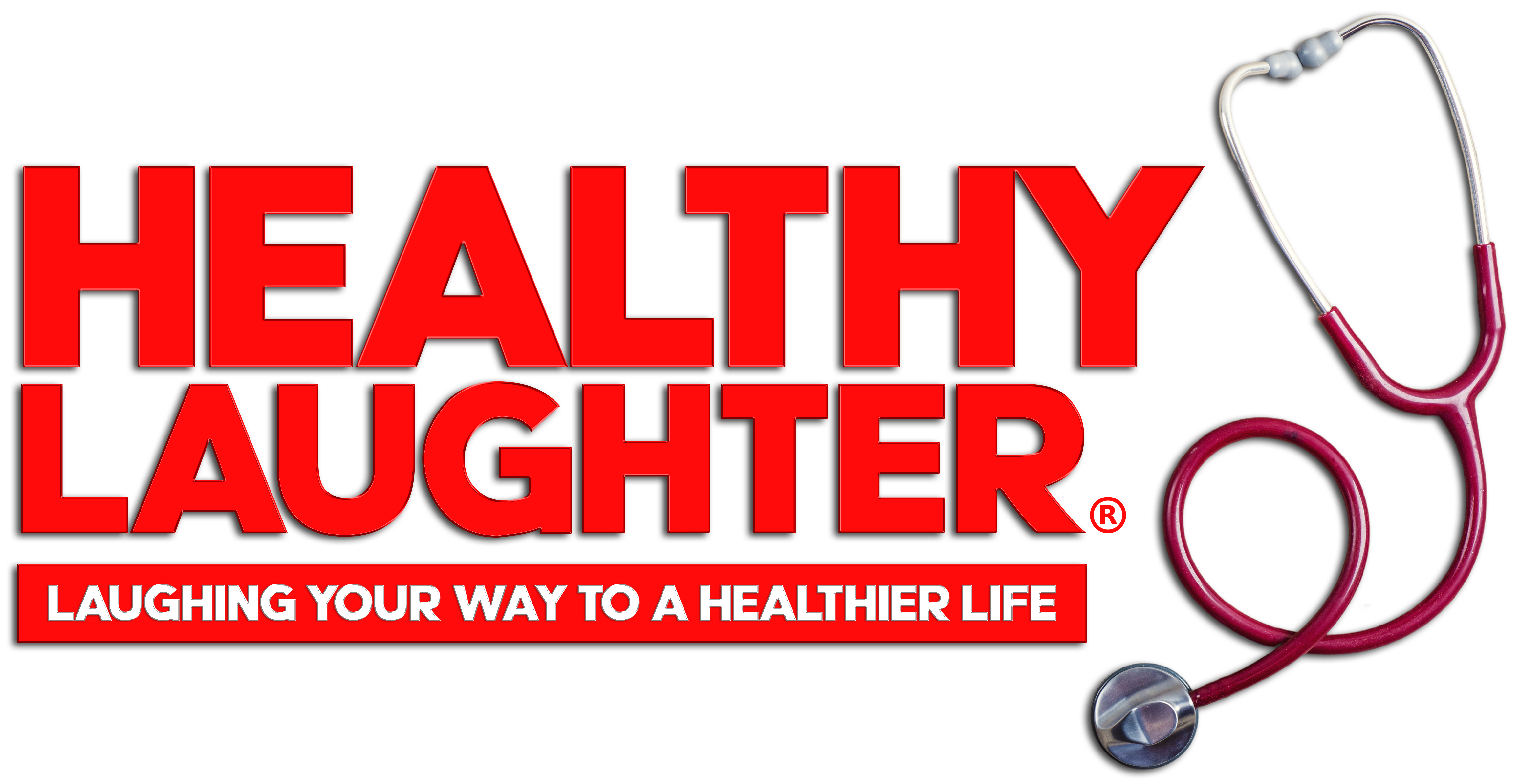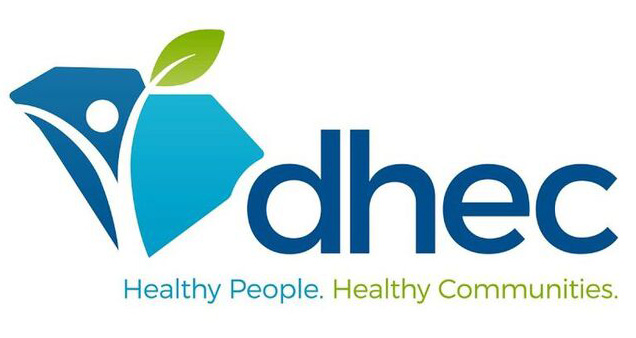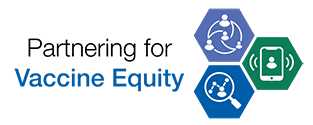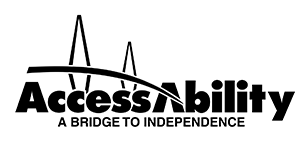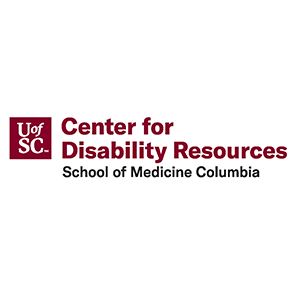Protect your community.
Secure your shot.
About Us
The SC Disability Vaccine Access Network was created to educate individuals in the disability community about the importance of the COVID-19 vaccine, provide help to overcome barriers to getting vaccinated, and to help those who want to get vaccinated to get the shot.
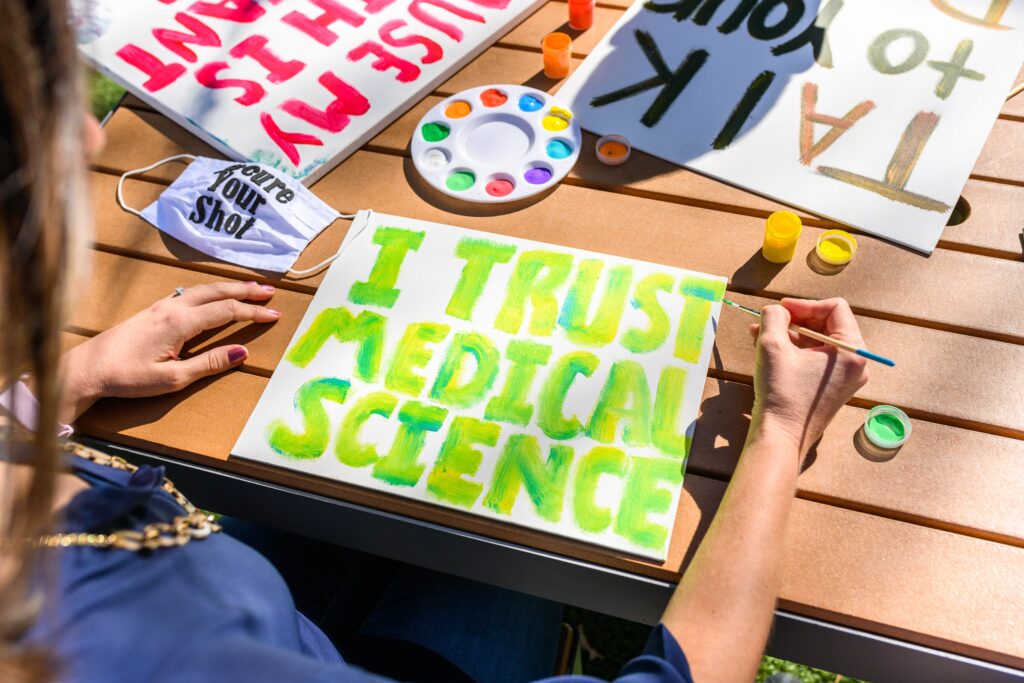
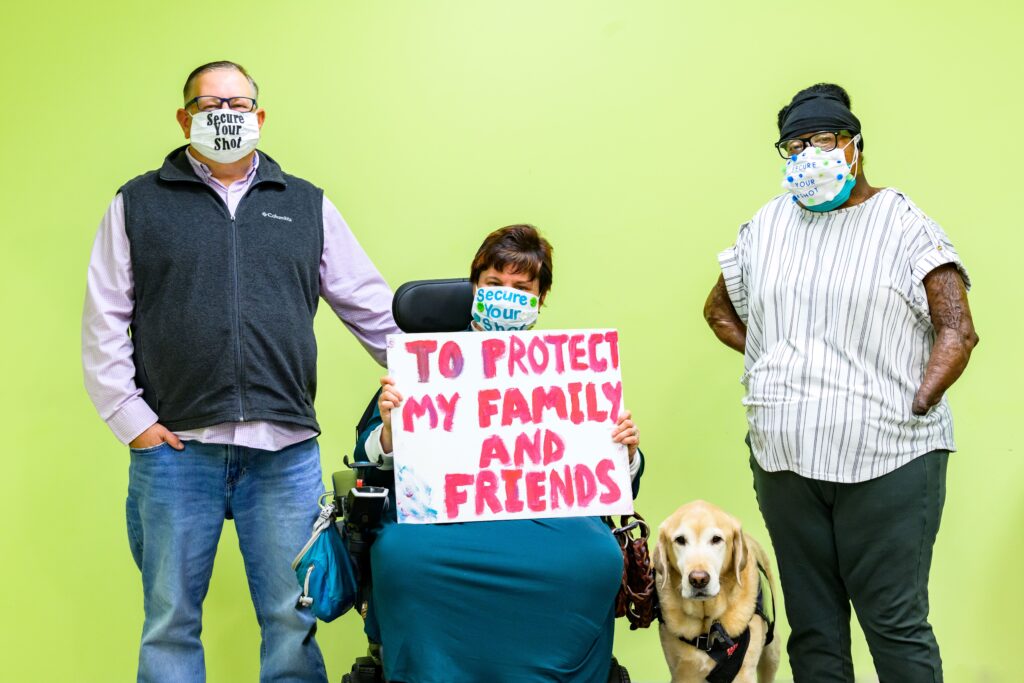
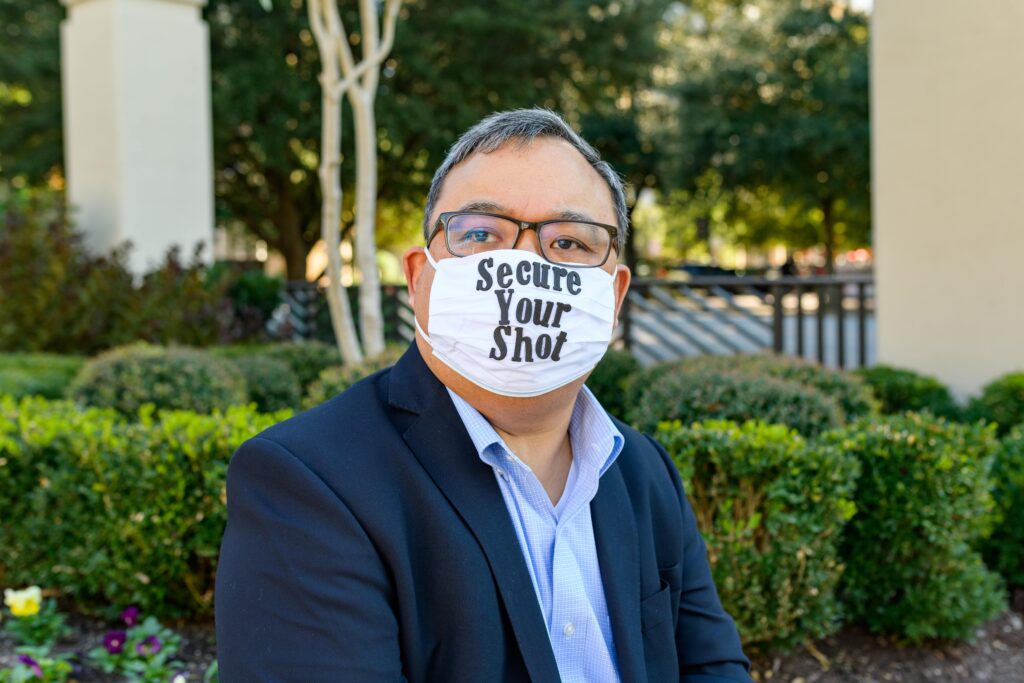
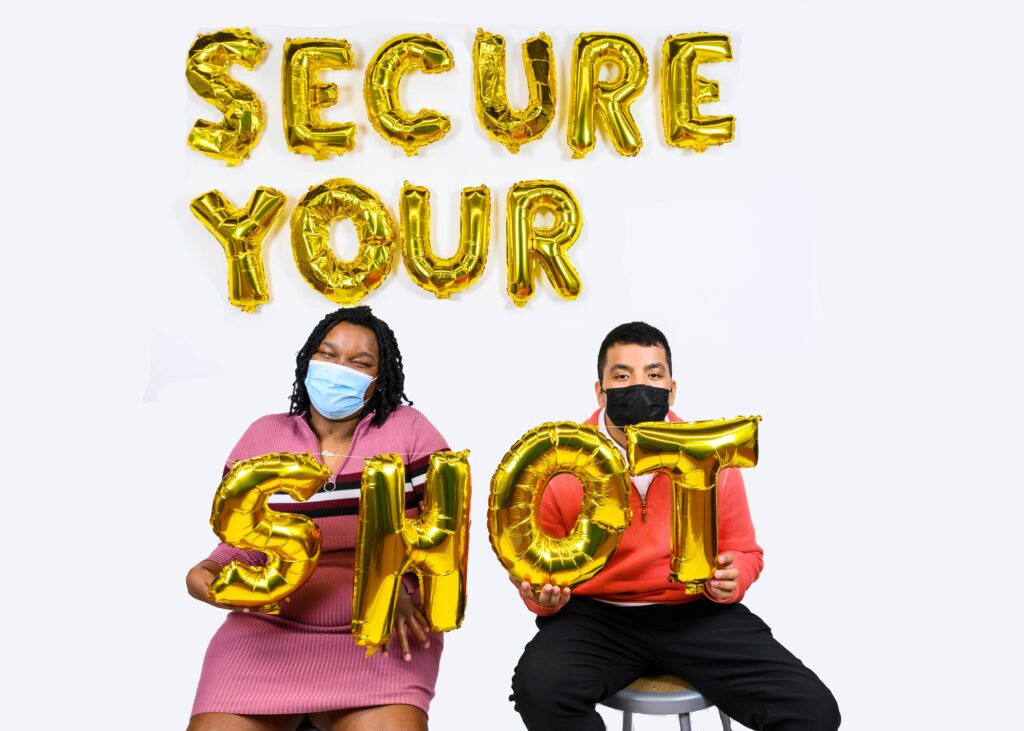
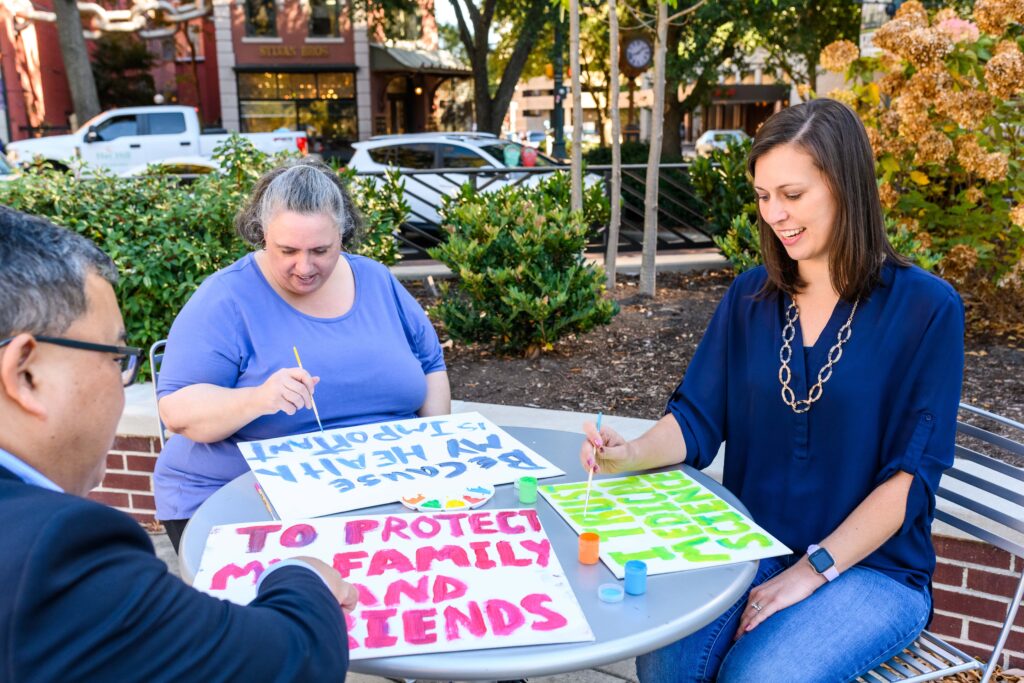
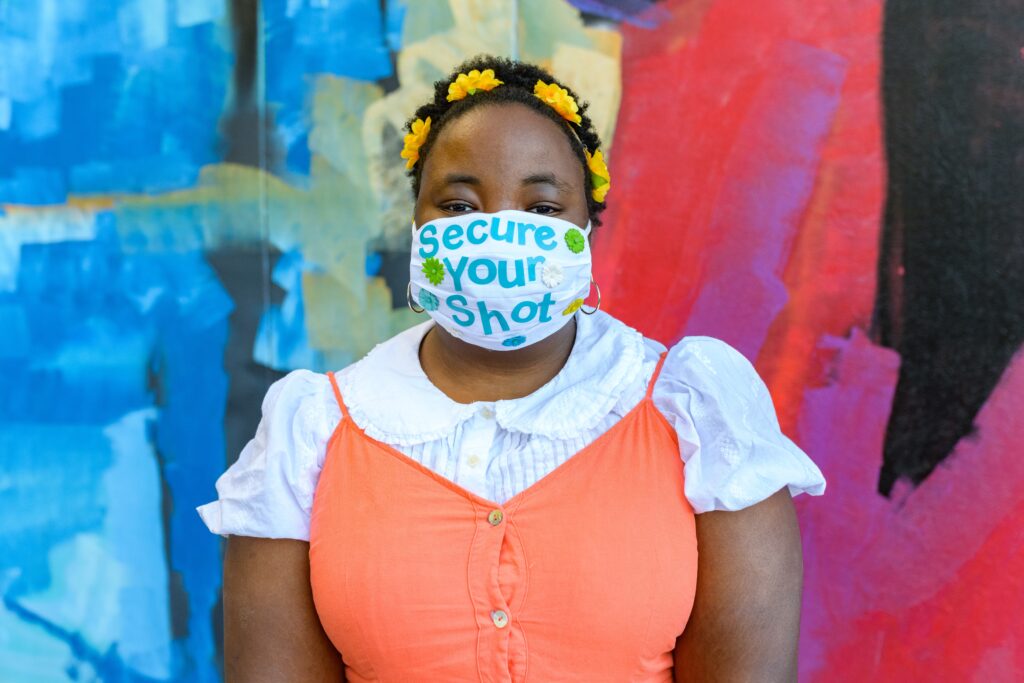
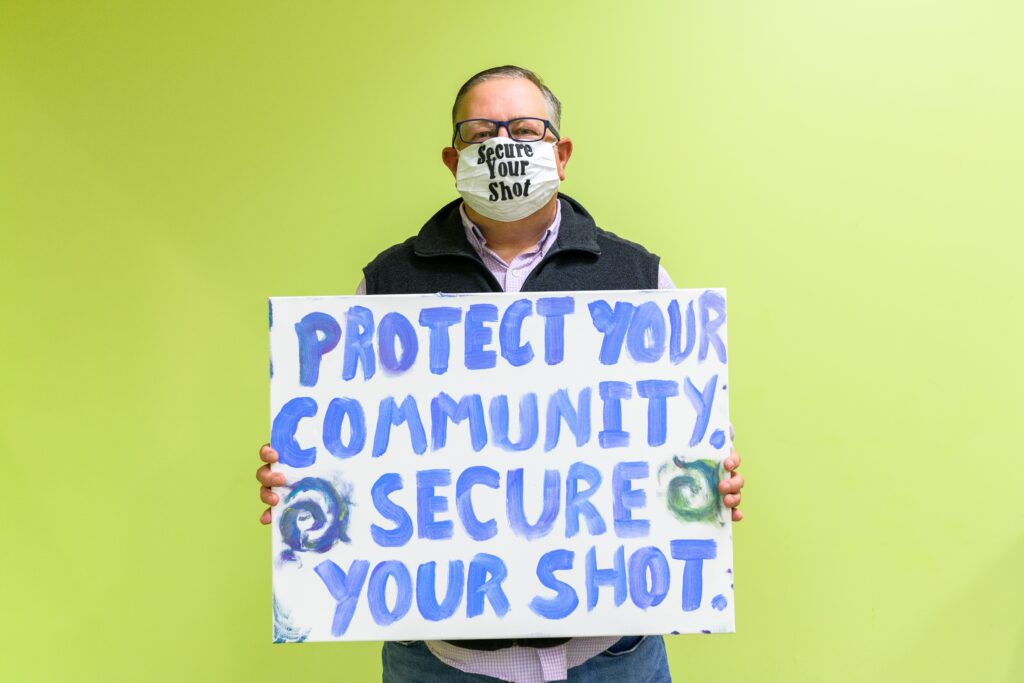

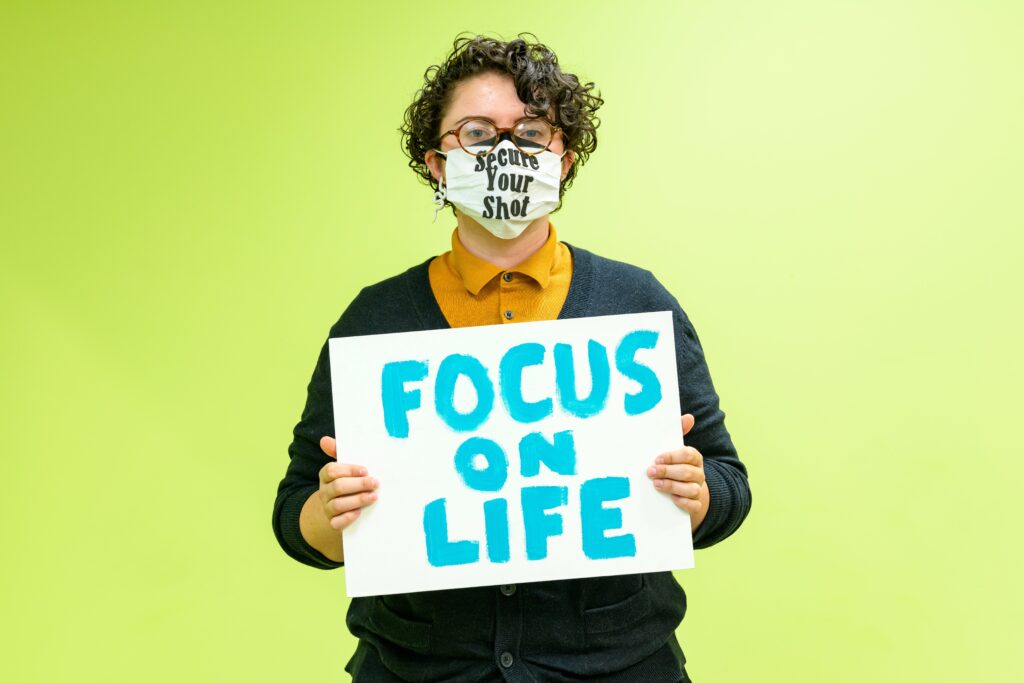



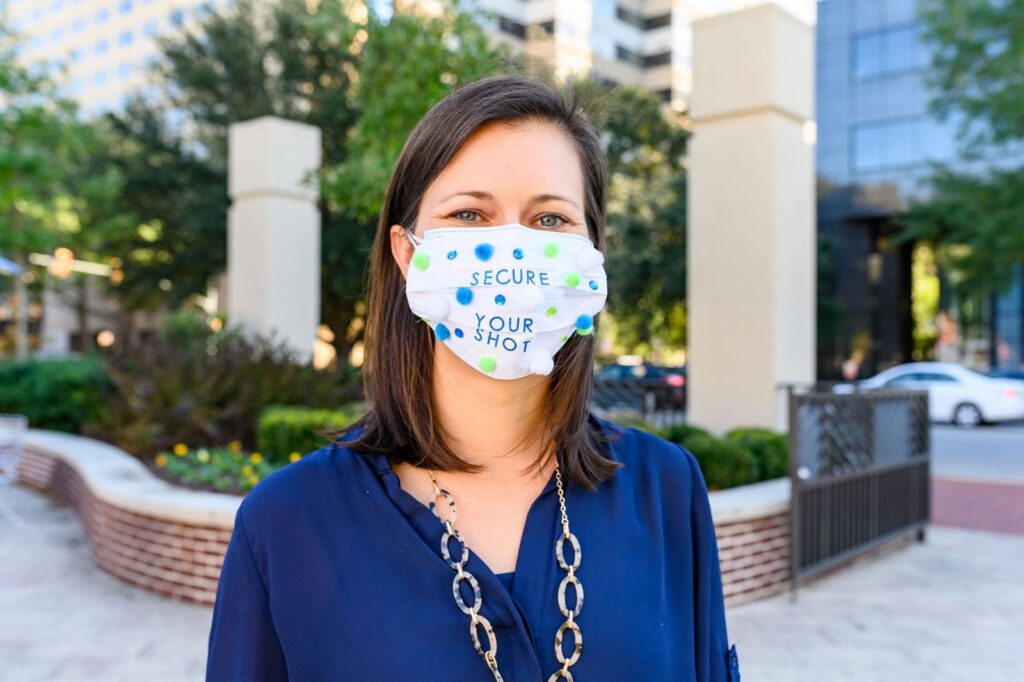
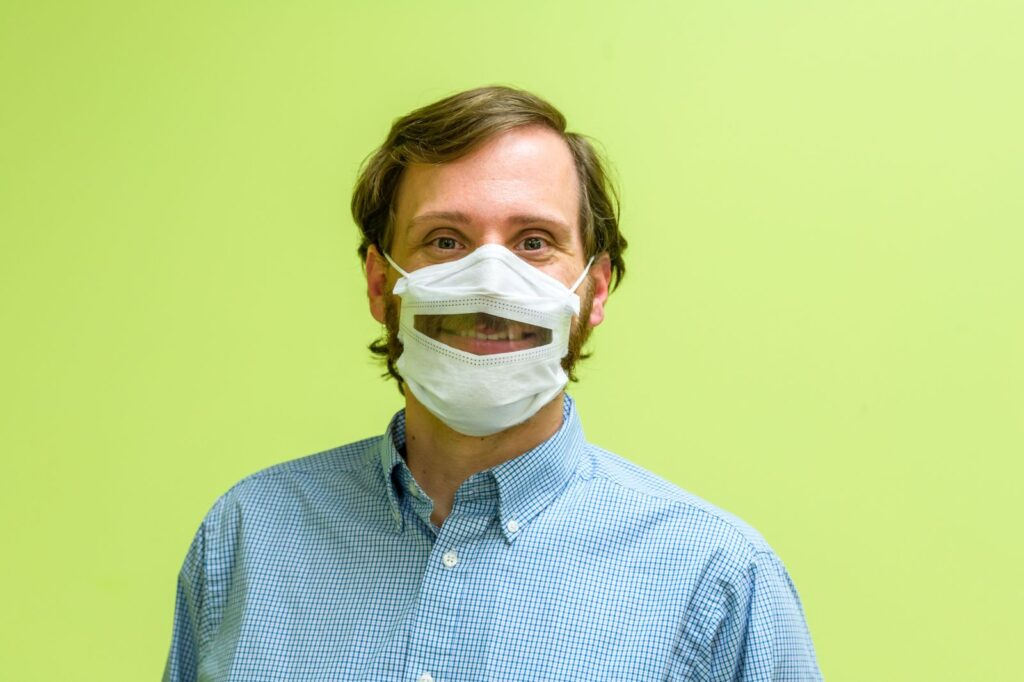
Learn the Facts
1 in 3 South Carolinians has a disability. People with disabilities are at high risk of severe sickness and potential death from COVID-19. It is important that people with disabilities get vaccinated, but you may be worried about the vaccine. We are here to help you learn more to make the best decision about vaccination.
Did You Know?
COVID-19 Vaccine Frequently Asked Questions from People with Disabilities
Are you nervous about COVID-19? Here are the facts about protecting yourself and others with vaccination.
Vaccine hesitancy in people with disabilities is often related to their past experiences or fear of how the vaccine will impact their disability. We talk about that here.
Our FAQ is for people with disabilities and the people that care about us in our lives. We keep our FAQ as up to date as possible. To see the most up to date details from the Centers For Disease Control (CDC) you can visit CDC's COVID-19 Vaccines page, linked in the button below.
Last updated: March 28, 2024
Educate Yourself: What is COVID-19? What is my risk?
COVID-19: What is it?
COVID-19 is the nickname for coronavirus. COVID-19 is making people sick all over the world, including people in South Carolina. People with disabilities and underlying medical conditions are at more risk of getting sick with COVID-19.
How do you get COVID-19? How does it make you sick?
- COVID-19 is spread through germs from people.
- These germs can be spread when someone who has COVID-19 coughs, sneezes, or when their germs get into the air or on things you touch.
- If you get COVID-19, it can make you feel sick and tired and even make you go to the hospital.
- COVID-19 has made many people sick, especially people with disabilities and health conditions.
- Some of the things that happen when you have COVID-19 are (Source 64 – Centers for Disease Control and Prevention, 2022):
- Have a cough
- Have a hard time breathing
- Have a fever
- Feel achy and tired
- Have new loss of taste or smell
- Have congestion, runny nose, or sneezing
- Have nausea, vomiting, or diarrhea
- Have a headache
- Have brain fog
- If you have brain fog, you might have trouble focusing or remembering information (Source 63 – Mayo Clinic Health System, 2022).
- If you are experiencing any of the following emergency warning signs of COVID-19 call your medical provider immediately:
- Having trouble breathing
- Having pain or pressure in the chest
- Having new confusion
- Having a hard time waking up and staying awake
- Have pale, gray, or blue-colored skin, lips, or nail beds. For people with darker skin, these symptoms may be harder to see
I have a disability. Why am I at a higher risk of getting sick and dying from COVID-19?
1 in 3 people in South Carolina has a disability (Source 1 – Centers for Disease Control and Prevention, 2021). The Centers for Disease Control and Prevention (CDC) says people with 1 or more medical conditions are 1.5 times more likely to die from COVID-19 (Source 2 – Centers for Disease Control and Prevention, 2021). People with disabilities may have a higher risk of getting very sick or dying if they get COVID-19 because:
- The type of disability you have can make you very sick if you get COVID-19.
- Your disability might mean you have a weaker immune system.
- COVID-19 can make the symptoms you already have get worse.
- If you have a breathing disability, getting COVID-19 can make it a lot harder to breathe.
- You may have limited mobility or cannot avoid coming into close contact with others who may be infected, such as direct support providers and family members who may care for you.
- You may have a hard time understanding information about COVID-19.
- You may have difficulty washing your hands and staying at least 6 feet away from others to protect yourself from COVID-19.
- You may have trouble communicating or explaining how you are feeling.
- Social factors may increase your risk of serious illness from COVID-19.
What social reasons put me at risk because of my disability?
Many other reasons may put you at more risk, such as where you live, lack of access to medical care, costs of medical care, and the type of disability you have. Please see below for some examples:
Where you Live
- You might live far away from COVID-19 vaccination centers, testing sites, doctors’ offices, and other medical help.
- If you live in a care facility, you are at more risk of getting COVID-19 and dying from COVID-19 than people with disabilities who are not living in care facilities. (Source 67 – National Council on Disability, 2021)
- You may live in an area that does not have public transportation and/or do not have your own transportation.
- If you live far away from your doctor, you might not get help until much later.
What can you do? You can call the SC Disability Vaccine Access Hotline at 1-800-787-6046 to get help getting a ride to get a COVID-19 vaccine.
Access to Medical Care
People with disabilities are at higher risk because going to the doctor’s office and getting care can be more challenging. Below are some of the reasons why going to the doctor’s office can be harder for people with disabilities.
- You may not have been able to get to medical exams because the doctor’s office is not accessible.
- You may not have gotten proper care because the devices or medical table were not accessible.
- You may have felt like the nurses, doctors, or other medical staff had a negative attitude toward your or your disability.
- You may have had a hard time understanding what your doctor or medical staff were telling you.
- You may have felt your disability was ignored.
- You may have felt that the doctor or medical staff didn’t understand your disability.
- You may have gone to the doctor before and felt they didn’t know how to care for you.
- You may have felt that you did not get the treatment you needed.
What can you do? You can call the SC Disability Vaccine Access Hotline at 1-800-787-6046 to get help getting a COVID-19 vaccine.
Costs:
- You might not have health insurance.
- Without insurance, you might be less likely to go to the doctor or hospital because of the cost.
- You may have other costs like childcare, transportation, parking, or missing work that might make it harder to get to a free COVID-19 vaccination site.
What can you do? You can call the SC Disability Vaccine Access Hotline at 1-800-787-6046 to get help getting a COVID-19 vaccine for free.
Your type of disability, where you live, access to care, and cost are all things that might keep you away from the doctor or a testing site.
- If you can’t get tested, you don’t know if you have COVID-19.
- If you don’t know if you have COVID-19, you can accidentally give COVID-19 to other people.
- If you don’t know you have COVID-19, you might get very sick before getting help.
- You might not want to go to the doctor. If you don’t go to the doctor, you might not learn you are sick until much later, when you could be much sicker and have a hard time getting better.
It is important that people with disabilities who are at high risk get the COVID-19 vaccine as soon as we can.
What is a COVID-19 variant?
A COVID-19 variant is a version of the COVID-19 virus that’s just a little different from the version before it. Some of the most common differences are that COVID-19 variants can spread faster, spread more easily and can make you sicker. For example, the Alpha variant spread a little faster than the original version of the COVID-19 virus (Source 27 – Centers for Disease Control and Prevention, 2021).
Some of the variants that you might hear a lot about are the Delta variant, the Omicron variant, and the BA5 subvariant. That is because all of these variants spread easily and can make you very sick.
Variants of viruses are common, and the CDC tells us these variants were expected. People with disabilities are generally at a higher risk of getting COVID-19 and are more likely to have worse outcomes or die from getting COVID-19 (Source 22 – Centers for Disease Control and Prevention, 2022; Source 67 – National Council on Disability, 2021; Source 73 – Ferreira, V. and Solera J., 2022).
As a person with a disability, how can I protect myself from COVID-19 variants?
The best way for people with disabilities to protect themselves from COVID-19 variants is by getting a COVID-19 vaccine and staying up to date with your shots. A vaccine may not stop you from getting sick, but it will help lower the risk that you will get very sick and go to the hospital with a COVID-19 variant.
If you have already gotten your vaccine, staying up to date and getting a booster shot is another way you can help protect yourself from COVID-19 variants. Vaccines make your immune system stronger to fight the virus.
Wearing a mask also lowers your risk of getting COVID-19 and all of the COVID-19 variants (Source 27 – Centers for Disease Control and Prevention, 2021).
Talk to your doctor, or another medical provider you trust, about which COVID-19 vaccine is the best for you. If you need help scheduling your vaccine or have questions, you can call the Disability Vaccine Access Hotline. You should also make sure to wear masks anytime you’re inside in a public place and wash your hands often.
What is Long Covid?
Long COVID is also known as “post-COVID conditions,” “chronic COVID,” and “long-haul COVID-19.”
Long COVID is the name for health problems or symptoms that someone has after having COVID-19. These health problems can start a month or more after having COVID-19 (Source 71 – Centers for Disease Control and Prevention, 2022).
What are common symptoms of Long COVID?
Long COVID can impact any part of your body. There are many different symptoms that you could have if you have Long COVID. Some of the things that happen when you have Long COVID are (Source 71 – Centers for Disease Control and Prevention, 2022):
- Have a cough
- Have a hard time breathing
- Have a fever
- Feel achy and tired
- Have loss of taste or smell
- Have congestion, runny nose, or sneezing
- Have stomach pain or diarrhea
- Have a headache
- Have brain fog
- If you have brain fog, you might have trouble focusing or remembering information (Source 63 – Mayo Clinic Health System, 2022).
- Have trouble sleeping
- Have chest pain or a fast heartbeat
- Have depression or anxiety
- Your symptoms may get worse after physical or mental exercise
How long can Long COVID symptoms last?
- Long COVID can last weeks, months, or even years. Doctors and scientists are still doing research to find answers to this question.
What do I need to know about Long COVID?
- You are more likely to get Long COVID if you are unvaccinated.
- Even if you have a mild case of COVID, you can still get Long COVID.
- There is not a single test that doctors use to find out if you have Long COVID. It is important to keep track of your symptoms so you can give your doctor as much information as possible.
What are some tips for talking to my doctor about Long COVID?
Some tips for talking to your doctor about Long COVID are (Source 77 – Centers for Disease Control and Prevention, 2022):
- Write down all sicknesses you have or might have had
- If you’re seeing a new doctor, write down all the other doctors that you’ve seen
- Write down when you had COVID-19 and any symptoms you had
- Write down when you started having symptoms again after testing negative for COVID-19
- Write down what tests you’ve had done for doctors to learn more about the symptoms you’re having
- Be ready to tell your doctor what medicines you take
- Ask for an appointment summary to keep track of what your doctor tells you
- Ask your doctor to write down any instructions they give you
How do I protect myself from getting COVID-19?
- Wash your hands with soap and water or use hand sanitizer.
- Stay away from large groups of people.
- Wear a face mask when you are around other people. Learn more about masks by reading our eblast on masks at this link.
- Get your COVID-19 vaccine and stay up to date with recommended updates.
Vaccines: What are they? Why are they important?
What is a COVID-19 vaccine?
A vaccine is a type of shot with medicine. The medicine in a COVID-19 vaccine fights the virus and helps protect you from getting sick.
Why are people getting a vaccine?
People get a vaccine to make it easier for their bodies to fight COVID-19.
What COVID-19 vaccines are available in the United States?
In the United States, the vaccines that have been approved are:
- Pfizer BioNTech
- Moderna
- Novavax
The Pfizer BioNTech COVID-19 vaccine is recommended by the Centers for Disease Control for people 6 months and older (Source 84- Centers for Disease Control and Prevention, 2023).
The Moderna COVID-19 vaccine is recommended by the Centers for Disease Control for people 6 months and older (Source 84- Centers for Disease Control and Prevention, 2023).
Novavax has been approved under an Emergency Use Authorization (EUA) for people ages 12 and older (Source 62- Food and Drug Administration, 2023).
The COVID-19 vaccines are safe and effective; they have been evaluated in tens of thousands of participants in clinical trials (Source 56 – Centers for Disease Control and Prevention, 2022).
Vaccines are available to people ages 6 months and older. (Source 84, Centers for Disease Control and Prevention, 2023)
Children ages 6 months to 4 years
Pfizer BioNTech vaccine 2023-2024 formula. The number of doses depends on whether the child has already received an older version of the Pfizer vaccine (Source 79; FDA 2023).
- Unvaccinated: 3 doses. The first two are 3 weeks a part, followed by a third dose can be given at least weeks after the second dose.
- People who have received at least one dose of the previous versions of Pfizer: 2 doses of the 2023-2024 formula. The first dose of the updated vaccine can be given at least 3 weeks after any previous dose. The second dose can be given at least 8 weeks after.
- Children who had 2-4 doses of any previous Pfizer COVID vaccine: a single dose of the 2023-2024 formula can be given at least 8 weeks after the older formula was given
Moderna Vaccine 2023-2024 Formula. The number of doses depends on whether the child has received any older versions of the Moderna COVID-19 vaccines (Source 80: FDA 2023).
- Unvaccinated: 2 doses. The second dose can be administered one month after the first dose.
- Children who have received at least one dose of the previous Moderna COVID vaccine: 1 dose at least 1 month after the previous dose
- Children who have received 2 or more doses of any previous Moderna COVID vaccine: 1 dose given at least 2 months after any previous dose. (Source 80, FDA 2023)
Children ages 5-11 years:
- Pfizer-BioNTech 2023-2024 formula: 1 dose.
- Moderna 2023-2024 formula: 1 dose.
- If children in this age group have had any previous COVID-19 vaccinations, this new dose must be given at least 2 months afterward.
People ages 12 and older:
- Pfizer BioNTech vaccine 2023-2024 formula: 1 dose
- Moderna vaccine 2023-2024 formula: 1 dose.
If people have received an older version of these vaccines, the dose of the new vaccine can be given 2 months or more after that older shot.
- Novavax vaccine 2023-2024 formula:
- Unvaccinated: 2 doses given 3 weeks apart. (Source 62 –Novavax: FDA 2023)
- Received any previous COVID-19 Vaccine: 1 dose at least 2 months after last version of the shot.
- If you are over 18 and your last COVID-19 vaccine was Johnson & Johnson, you may receive a single dose of any of the updated 2023-2024 COVID-19 Vaccines (Source 84; CDC, 2023).
What is emergency use authorization?
An Emergency Use Authorization (EUA) happens when supplies or medicine like a vaccine are needed quickly in an emergency. The spread of the COVID-19 pandemic is an example of an emergency.
- In an emergency, the Food and Drug Administration (FDA) has the power to approve a vaccine quickly.
- In an emergency, the supplies or medicine will help prevent a specific disease like COVID-19.
- Emergency Use Authorization (EUA) does not mean that important steps were skipped in making the vaccines safe.
Does the vaccine have the virus in it?
No. None of the COVID-19 vaccines approved in the United States contain the live virus. All three vaccines give your immune system the tools it needs to attack the COVID-19 virus. Each vaccine does this in different ways (Source 45 – Centers for Disease Control and Prevention, 2022).
What is a protein subunit vaccine, and how does it work?
Novavax is a protein subunit vaccine.
- When making protein subunit vaccines, scientists only use parts of the virus that do the best job of giving your immune system what it needs to fight COVID-19.
- This type of vaccine contains S proteins that are harmless.
- When your body recognizes the proteins, in response, your immune system makes antibodies and white blood cells (Source 58 – Mayo Clinic, 2022).
- This type of vaccine has been used for many years. Examples include flu, Hepatitis B, and Whooping Cough vaccines (Source 59 – Centers for Disease Control and Prevention, 2022).
- This type of vaccine is different from the mRNA vaccines because it contains something called an adjuvant (Source 5 – Katella, 2022).
- An adjuvant is an ingredient used to increase your immune system’s response. They have been used for many years in a variety of vaccines and are very safe (Source 61 – Centers for Disease Control and Prevention, 2022).
What is an mRNA vaccine, and how does it work?
Moderna and Pfizer are messenger RNA (mRNA) vaccines.
- These vaccines deliver a tiny piece of safe genetic material from the virus to cells in the body.
- This material gives instructions for making copies of something called spike proteins.
- Spike proteins stimulate an immune response and produce antibodies.
- If your body is infected with the virus, your cells will remember and plan how to respond (Source 5 – Katella, 2022).
- After the spike protein is made, our body breaks down the mRNA and removes it.
- mRNA vaccines do not and can’t change or interact with your DNA.
- mRNA vaccines do not go to where DNA is located in our bodies (Source 6 – Centers for Disease Control and Prevention, 2021).
- Even though this type of vaccine is new, research and development on it have been going on for over 50 years (Source 7 – Dolgin, 2021).
- The vaccines went through the same development and steps as other vaccines. The COVID-19 vaccines were developed quickly to save lives.
Why is the COVID-19 vaccine important for people with disabilities?
People with disabilities may have a higher risk of getting very sick or dying if they get COVID-19. This is because of many possible reasons listed below:
- The type of disability you have can make you very sick if you get COVID-19.
- Your disability might mean you have a weaker immune system.
- COVID-19 can make the symptoms you already have get worse.
- If you have a breathing disability, getting COVID-19 can make it a lot harder to breathe.
- You may have limited mobility. This can mean you can’t avoid being near other people who may be infected, like direct support providers and family members.
- You may have a hard time understanding information about COVID-19.
- You may have a hard time washing your hands and staying at least 6 feet away from others to protect yourself from COVID-19.
- You may have trouble communicating how you are feeling.
- Social reasons may increase your risk of serious illness from COVID-19.
People with disabilities at high risk must get the COVID-19 vaccine and follow up with recommended updates as soon as possible (Source 3 – International Disability Alliance, 2020).
COVID-19 is dangerous. The vaccine is not. The effects of COVID-19 are worse than the vaccine’s side effects (Source 10 – Rosenblum et al., 2021). Some people who get COVID-19 can stay sick for a long time. This sickness is called Long COVID. Long COVID is a disability. Getting your COVID-19 vaccine can help keep you safe from COVID-19 and Long COVID (Source 66 – Centers for Disease Control and Prevention, 2022).
You should talk to your doctor if you think you may have a high risk of getting very sick from COVID-19.
What if I’m allergic to other vaccines?
You should still think about getting the COVID-19 vaccine even if you have allergies to other vaccines. If you have had an allergic reaction to other vaccines, talk with your doctor as the COVID-19 vaccine may be very different.
- Pfizer & Moderna COVID-19 Vaccines (mRNA) (Source 11 – Warren et al., 2021)
- Studies show that most allergic reactions to the Pfizer and Moderna vaccines are related to an ingredient used in the vaccine called Polyethylene Glycol (PEG).
- Most allergic reactions are to PEG, not the mRNA.
- Novavax COVID-19 Vaccines
- For the Novavax COVID-19 vaccine, the ingredient that causes the most allergic reactions is Polysorbate (Source 62 -Novavax: FDA 2023).
PEG and Polysorbate are common ingredients in vaccines. PEG is a common ingredient in Gatorade or Miralax. Both of these ingredients have been known to cause allergic reactions in some people. Most people are not allergic to PEG or Polysorbate.
If you know you are allergic to one ingredient in the vaccines, ask your doctor if another vaccine would be better for you. You may still be able to get the vaccine because there are different kinds of vaccines (Source 12 – Centers for Disease Control and Prevention, 2021).
You should still get the vaccine if you have other non-medical allergies, such as allergies to some foods, animals, or environments (Source 12 – Centers for Disease Control and Prevention, 2021).
If you are worried about allergies, you should ask your doctor how to safely get the COVID-19 vaccine.
What is the difference between booster shots and updated vaccine formulas? What does it mean to be up-to-date on my COVID-19 vaccine??
- COVID-19 booster shots were doses of a COVID-19 vaccine that helped the protection from your first round of vaccine last longer.
- Scientists are now able to update the COVID-19 vaccines to protect against newer COVID variants.
- Updated vaccines are important because these variants can be easier to get and spread than the original virus.
- COVID-19 vaccines are working well to prevent severe sickness, keep you out of the hospital, and prevent death. Getting your COVID-19 vaccine can also help keep you safe from Long COVID (Source 66 – Centers for Disease Control and Prevention, 2022).
- People with disabilities are at more risk of getting very sick or dying from COVID-19. Getting updated COVID-19 vaccines will help you protect yourself.
What is the difference between bivalent and monovalent shots?
- A monovalent vaccine has ingredients that fight one strain of a virus. The original COVID-19 monovalent vaccines and boosters were made to fight the original COVID-19 virus (Source 75 – Memorial Sloan Kettering, 2023).
The original COVID-19 vaccines were monovalent.
- The Novavax Vaccine and it’s boosters and updates are monovalent. Source 84, Source 53 – Washington State Hospital Association, 2022).
A bivalent vaccine has ingredients that fight two strains of a virus (Source 74 – Food and Drug Administration, 2022).
If you received an MRNA COVID-19 booster shot between September 2021-September 2022, you received a Bivalent booster shot. (Source 75: Memorial Sloan Kettering, 2023)
- These COVID-19 vaccine boosters contained mRNA from the original SARS-CoV-2 virus and a strain of the Omicron variant to fight against BA.4 and BA.5. (Source 75 -Memorial Sloan Kettering, 2023).
- The FDA and CDC recommended these bivalent boosters because those two strains of COVID-19 were circulating the most at that time.
Starting in September 2023, updated Moderna, Pfizer, and Novavax COVID-19 vaccines were released. These are all monovalent vaccines.(Source 84: CDC 2023)
Receiving an updated vaccine now means that you have received a vaccine targeting the family of COVID-19 variants that are currently circulating the most. Starting in October 2023, the updated COVID-19 vaccines target the xbb.1.5 Omicron variant (Source 84: CDC 2023)
Do the updated vaccines have different side effects?
- Side effects from the updated vaccines are similar to the side effects from the original COVID-19 vaccines.
- Most side effects are redness and swelling where you got your vaccine. You may also have fatigue, headache, fever, and joint pain (Source 75 -Memorial Sloan Kettering, 2023. Source 35, Johns Hopkins, 2023).
Will the monovalent vaccines and boosters still be used?
- The only monovalent COVID-19 vaccines currently in use are the 2023-2024 updated Moderna, Pfizer, and Novavax vaccines. All older versions of these vaccines have been discontinued. (Source 84, CDC, 2023)
Which updated vaccine should I get?
- There are 3 options.
- Pfizer
- Moderna
- Novavax
- Do children and adults get the same shot? (Source 84: CDC 2023; Source 87: American Academy of Pediatrics 2023)
- Children 12 to 17 will get the same updated vaccine as adults.
- Children 4 months to 11 years will get the same updated Pfizer or Moderna vaccine formula as adults. Depending on their age and vaccine history, they may receive a smaller dose and/or additional dose.
- Pfizer:
- The dosage for children ages 5 years to 11 years is ⅓ of the adult shot.
- The dosage for children ages 6 months to 4 years is 1/10 of the adult shot.
- Moderna: Children ages 6 months through 11 years get half of the dose that children ages 12 years and older receive.
- Pfizer:
When should I get my Updated shot?
Everyone older than 5 years old is eligible for an updated 2023-2024 COVID-19 vaccine as long as it has been at least 2 months since any older COVID-19 vaccine. Children under age 5 are also eligible, but may need more than one updated dose based off of their COVID-19 vaccination history. Your age affects which brand of vaccine you can have.
- MRNA vaccines: people ages 6 months and older
- Novavax: People ages 12 and up. (Source 84: CDC 2023; Source 62: FDA 2023)
Children ages 6 months to 4 years can also get the updated 2023-2024 MRNA vaccines. For this age group, whether or not they had previous COVID-19 vaccines affects when they can have the updated version.
Unvaccinated:
- Pfizer BioNTech: 3 doses
- Moderna: 2 doses.
Received 1 dose of previous COVID-19 vaccine:
- Pfizer BioNTech: A child can receive 2 doses of the updated 2023-2024 Pfizer formula, the first dose must be given 3 weeks after any previous vaccine version. The second updated dose can be given at least 8 weeks after the last one.
- Moderna: A single 2023-2024 updated vaccine dose can be given at least 1 month after any previous version of the Moderna COVID-19 vaccine.
Received 2 or more doses of any previous MRNA COVID-19 vaccine.
- Pfizer BioNTech: A single dose of the updated vaccine can be administered at least 8 weeks after any previous Pfizer COVID-19 vaccine.
- Moderna: A single dose of the updated 2023-2024 updated vaccine can be given at least 2 months after any previous versions of the Moderna COVID-19 vaccine.
Sources: 85, FDA 2023; 86, FDA 2023; 84, CDC 2023)
If you have had an allergic reaction to a COVID-19 vaccine ingredient in the past, then your doctor may tell you not to get that vaccine.
- If you have been instructed not to get one type of COVID-19 vaccine, you may still be able to get another type.
- Talk to your doctor to find out which COVID-19 vaccine is best for you.
Getting your updated vaccine will help you stay up-to-date on your COVID-19 vaccine.
When should I get my updated shot if I have a weakened immune system?
What are additional doses for people with disabilities?
The CDC recommends the 2023-2024 updated COVID-19 vaccines as the best way to keep protecting yourself and your community from COVID-19.
Everybody ages 6 months and older should get at least one dose of an updated 2023-2024 COVID-19 vaccine.
An additional dose is different from a booster shot. If your disability causes a weakened immune system, you may need more doses of COVID-19 vaccine to best protect you from getting sick from the virus. Additional doses can make your immune system’s response to the COVID-19 vaccine better (Source 16 – Centers for Disease Control and Prevention, 2023).
The number of additional doses you will need depends on:
- How many previous doses of COVID-19 vaccine you have received.
- Your age.
- You and your healthcare provider’s knowledge of your specific health needs.
Keep reading for a vaccination and booster timeline for individuals who are moderately to severely immunocompromised.
Note that if you have received 3 or more previous doses of a Pfizer or Moderna vaccine, you must wait at least 2 months before receiving another dose (Source 16: CDC, 2023).
Children ages 6 months-4 years.
Pfizer BioNTech:
- Unvaccinated: 3 doses. The first 2 doses will be given 3 weeks apart. The third dose can be given after at least 8 weeks (Source 79; FDA, 2023).
- Previously received at least one older Pfizer COVID-19 vaccine: 2 doses of the updated 2023-2024 Pfizer vaccine given at least 8 weeks apart.
- Received 2-4 doses of any previous Pfizer COVID-19 vaccine: 1 dose of the updated 2023-2024 formula at least 8 weeks after any previous COVID-19 vaccine.
- Immunocompromised individuals in this age group must complete at least a 3 dose series with doses being at least 1 month apart. At least one of these doses must be an updated 2023-2024 Pfizer BioNTech COVID-19 vaccine. (Source 79: FDA, 2023; Source 16: CDC, 2023).
Moderna:
- Unvaccinated: 2 doses of the updated 2023-2024 COVID-19 vaccine given at least one month apart.
- Received at least 1 dose of any previous Moderna COVID-19 vaccine: 1 dose of the updated 2023-2024 Moderna COVID-19 vaccine at least 1 month after any previous version of the Moderna COVID-19 vaccine.
- Received 2-4 doses of the previous Moderna COVID-19 vaccine: 1 dose of the updated 2023-2024 Moderna COVID-19 vaccine given at least 8 weeks after any previous doses.
- Immunocompromised children in this age group need a 3 dose series of 2023-2024 COVID-19 vaccine. The doses must be given at least 1 month apart. At least one dose must be a 2023-2024 formula of a COVID-19 vaccine (Source 80: FDA, 2023; Source 16: CDC, 2023).
Children ages 5-11 years:
Pfizer BioNTech:
- 1 dose of the updated 2023-2024 COVID-19 vaccine. If previous Pfizer COVID-19 vaccine doses were received, an updated 2023-2024 dose can be given at least 2 months after the last dose.
- Immunocompromised individuals in this age group must complete at least a 3 dose series with doses being at least 1 month apart. At least one of these doses must be an updated 2023-2024 Pfizer BioNTech COVID-19 vaccine. (Source 79: FDA, 2023; Source 16: CDC, 2023).
Moderna:
- 1 dose of the updated 2023-2024 Moderna COVID-19 vaccine. If previously vaccinated with older COVID-19 vaccines, give the updated dose at least 2 months after the last dose.
- Immunocompromised children in this age group need a 3 dose series of 2023-2024 COVID-19 vaccine. The doses must be given at least 1 month apart. At least one dose must be a 2023-2024 formula of a COVID-19 vaccine (Source 80: FDA 2023; Source 16: CDC, 2023).
Children ages 12-17:
Pfizer BioNTech
- 1 dose of the updated 2023-2024 formula given at least 2 months after any previous COVID-19 vaccine.
- Immunocompromised individuals in this age group must complete at least a 3 dose series with the 2nd dose being at least 3 weeks after the 1st dose, and the 3rd dose being at least 1 month after the second dose. At least one of these doses must be an updated 2023-2024 Pfizer BioNTech COVID-19 vaccine. (Source 79: FDA, 2023; Source 16: CDC, 2023).
Moderna:
- At least one dose of the updated 2023-2024 formula given at least 2 months after any previous COVID-19 vaccine.
- Immunocompromised children in this age group need a 3 dose series of 2023-2024 COVID-19 vaccine. The doses must be given at least 1 month apart. At least one dose must be a 2023-2024 formula of a COVID-19 vaccine (Source 80: FDA 2023; Source 16: CDC, 2023).
Novavax Adjuvanted:
- Unvaccinated: 2 doses of updated 2023-2024 formula 3 weeks apart.
- Previously Received any other COVID-19 vaccine: 1 dose of updated 2023-2024 Novavax COVID-19 vaccine at least 2 months after the last dose.
- Immunocompromised: An additional dose may be recommended by your doctor at least 2 months after your previous dose. (FDA Novavax, 2023)
People ages 18 and older:
- At least 1 dose of any updated 2023-2024 COVID-19 vaccine after any older version of the COVID-19 vaccine is recommended to get you up-to-date.
- Immunocompromised: If you are 18 and older and previously received a J&J vaccine, then you should receive an updated 2023-2024 vaccine. (Source 16: CDC, 2023).
Sometimes the type of help you need can put you at a higher risk of getting COVID-19. You may have limited mobility. This can mean you can’t avoid being near other people who may be infected, like direct support providers and family members.
For example, you might be at more risk of getting COVID-19 if:
- You must come in close contact with others who help you, such as direct care providers, personal caregivers, teachers, and family members. People near you could have COVID-19 and spread it to you.
- You have trouble understanding information or practicing safety skills, such as hand washing, wearing a mask, and social distancing.
- You have trouble communicating when you are feeling sick.
People who support you should get the COVID-19 vaccine to help keep you healthy. These people may include:
- Your family
- Your teachers
- Your personal caregivers
- Your direct care providers
People with disabilities are at more risk of getting very sick or dying from COVID-19. By getting their vaccine and recommended updated shots, the people around you can help protect you better.
Getting the vaccine and updated shots at the prescribed time will help them stay up-to-date on their COVID-19 vaccine.
How do I schedule my COVID-19 vaccine?
The South Carolina Disability Vaccine Access Hotline can help you schedule your COVID-19 vaccine appointment.
- The South Carolina Disability Vaccine Access Hotline can help people with disabilities, families, and caregivers.
- You can reach the South Carolina Disability Vaccine Access Hotline at 1-800-787-6046
- To find COVID-19 and flu vaccine providers in your area, you can go to vaccines.gov and enter your zip code, city, or state. The website will bring up listings for vaccine providers in your area. The website will also provide you with the contact information to schedule your shot.
It is also possible to schedule your COVID-19 vaccine online or by phone through your local health department or pharmacy.
To schedule a COVID-19 vaccine to be provided by the South Carolina Department of Health and Environmental Control (DHEC):
- Call: 1-855-472-3432. Or
- Consult DHEC’s COVID-19 Vaccine Page for instructions on how to schedule an appointment with them online.
Safety & Trust: Nervous? Trust these facts.
SAFETY: I have a disability, and I’m nervous about the vaccine. How do I know it’s safe and works for me?
COVID-19 vaccines are the best way to protect yourself from getting very sick or dying from COVID-19. They can also protect you from getting long covid (Source 71 – Centers for Disease Control and Prevention, 2022). The effects of COVID-19 can be much worse for a person with a disability than any of the side effects of the vaccine (Source 10 – Rosenblum et al., 2021).
People with disabilities are often much safer if they get the vaccine. The vaccines do not give you COVID-19.
Getting COVID-19 and long COVID is much worse than any vaccine side effects (Source 72 – Reno, 2021).
Let’s learn about the normal side effects you may have from getting vaccinated and why the COVID-19 vaccine is safe for everyone, including people with disabilities.
Are there side effects from the shots?
Some people might experience side effects from the shots, and others will not.
- Side effects might include pain, redness, or swelling where you got the shots.
- Other side effects you might have are:
- fever
- pain
- chills
- headache
- nausea
If you have any of these side effects, it can mean the vaccine is working. Your body is learning to protect itself against COVID-19. Side effects should go away after a few days. If you are worried about any side effects you have, you should contact your doctor.
When you get your COVID-19 vaccine, you can sign up for V-Safe. V-Safe is an after-vaccine health checker available online. Signing up for V-Safe will allow you to report to the Centers for Disease Control and Prevention (CDC) how you are feeling after you get your shot. Sharing how you feel after vaccination helps the CDC monitor the safety of the vaccine. (Source 90– Centers for Disease Control and Prevention, 2024).
I worry about how the vaccines will impact my disability and health condition. Why should I get vaccinated?
Without the COVID-19 vaccine, you have the greatest risk of getting very sick, going to the hospital, and dying. You are also at higher risk of developing long covid (Source 71- Centers for Disease Control and Prevention, 2022).
People with disabilities may have a higher risk of getting very sick or dying if they get COVID-19 (Source 18 – Centers for Disease Control and Prevention, 2021). This is because of many possible reasons listed below:
- The type of disability you have can make you very sick if you get COVID-19
- Your disability might mean you have a weaker immune system
- COVID-19 can make the symptoms you already have with your disability get worse
- If you have a breathing disability, getting COVID-19 can make it a lot harder to breathe
I heard the vaccines give you the COVID-19 virus. Is that true?
No. None of the COVID-19 vaccines approved in the United States contain the live virus. The vaccines approved in the United States are the Pfizer vaccine, Moderna vaccine, and the Novavax vaccine,. The shots do not use the live virus. They can’t make you sick with COVID-19 (Source 19 – Centers for Disease Control and Prevention, 2021).
Why should I bother getting vaccinated if I can still get COVID-19?
In most cases, the COVID-19 vaccine will prevent you from becoming sick and going to the hospital if you test positive for the virus. It can also protect you from getting long covid.
- Most of the people who are in the hospital with COVID-19 have not been fully vaccinated. This means they have not gotten all of the recommended doses of the vaccine.
- You can still catch the virus from someone after you get the vaccine. This is called a breakthrough infection.
- If you got the vaccine and still get COVID-19, you could likely have mild symptoms. The vaccine helps you not get as sick as you could if you were not vaccinated.
- Getting vaccinated is your best chance at protecting yourself from getting very sick, going to the hospital, or dying from COVID-19 (Source 20 – Centers for Disease Control and Prevention, 2021)
I’ve already had COVID-19, so why should I get the vaccine?
It is possible to become sick with COVID-19 more than once. Scientists learned getting the vaccine may better protect you from COVID-19 (Source 21 – Centers for Disease Control and Prevention, 2021) and long COVID.
- After getting sick with COVID-19, you may have “natural immunity.”
- Natural immunity from COVID-19 happens when your body produces antibodies to fight off COVID-19 after you have been exposed to or gotten sick with the virus.
- This natural immunity does not last very long.
- Natural immunity may not protect you from COVID-19 variants (Source 21 – Centers for Disease Control and Prevention, 2021. Source 35, Johns Hopkins Medicine, 2023).
- Talk to your doctor about your COVID-19 vaccine to protect yourself and your community.
TRUST: I don’t trust the information I’m getting about vaccines. Why should I trust the vaccine now?
When vaccines were first made available in 2020, some doctors wanted more information for their patients with disabilities. At that time, your doctor may have told you to wait to get vaccinated. Since then, we know COVID-19 vaccines are safe for many people with disabilities.
Some people are still worried about trusting the vaccine, especially if they have a disability. Let’s talk about common questions about vaccine trust:
I heard the vaccine was made quickly. Why should I trust it?
The COVID-19 vaccines available in the U.S. (Pfizer, Moderna, and Novavax, were developed in response to the global COVID-19 pandemic. A pandemic is a widespread sickness that affects the whole world.
- Research that led to these types of vaccines has been going on for over 50 years.
- The COVID-19 vaccine went through the same steps as other vaccines.
- The COVID-19 vaccines were just made quickly to save lives.
- COVID-19 vaccines were made thanks to funding and scientists around the world working together (Source 19 – Centers for Disease Control and Prevention, 2021).
- The COVID-19 vaccines are safe and are proven to work for people with disabilities (Source 22 – Centers for Disease Control and Prevention, 2022).
- People with disabilities are at greater risk of getting sick and dying from COVID-19 due to:
- Medical conditions
- Group living settings
- Issues in the health and social systems that are not fair or equal
- (Source 22 – Centers for Disease Control and Prevention, 2022)
- Talk to your doctor about your COVID-19 vaccine to protect yourself and your community.
Why should I trust the vaccine is safe for me?
Due to discrimination, people with disabilities might not trust medical companies or politicians who encourage vaccination. Even though you may not trust medical companies or politicians to protect the disability community, COVID-19 vaccines help us protect our community. (Source 23 – Centers for Disease Control and Prevention, 2021)
- You might be afraid to get the vaccine because you were told something scary about the vaccine.
- You might not trust the vaccine because you got some wrong information.
- You may have experienced trauma from the medical care you’ve gotten. Trauma can include serious physical or emotional harm.
- You may be worried because information about your disability may not be included in what you’ve learned about the vaccine.
- Maybe you’re worried because vaccine information is often changing and updating.
- Maybe you have read one thing about COVID-19, but a new thing you’ve read says something different.
- Maybe the information is not shared in a way that you can understand.
It can be hard to know what’s right or wrong. Here are the facts about the COVID-19 vaccine:
- Evidence shows these vaccines are safe for many people, including people with disabilities (Source 23 – Centers for Disease Control and Prevention, 2021).
- The vaccines help slow the spread of COVID-19 and lower the chances of getting very sick or dying from COVID-19.
- The vaccine can protect you from getting long covid.
- Many independent groups, including those led by doctors of color, have done their work to test the vaccines. They say the vaccines work and are safe (Source 24 – National Medical Association, 2020).
- Many government officials, including all living U.S. presidents and current governors, got COVID-19 vaccines (Source 26 – Link, 2021).
How does knowing someone who has already gotten their vaccine, and is doing well, encourage me to get the vaccine?
- The COVID-19 vaccine has been available since 2020. This means you probably know one or more people who have gotten their vaccine and booster and are doing well. This is good news for many reasons:
- If you are nervous, it gives you someone to talk to about how it went for them.
- Any common side effects they had will give you an idea of what might happen when you get vaccinated and boosted.
- If they are a person with a disability, they can share how they found an accessible vaccine site.
- Hearing about another person’s experience might help to give you confidence.
- You might not realize you know someone who’s gotten the vaccine, but don’t be afraid to ask around.
- Having friends and family you know you can trust goes a long way to help you feel more confident about getting the vaccine.
Protect Yourself & Others: What about at-risk groups?
I’m concerned about the vaccine for people in my life. How does it impact children, older adults, or pregnant people, including those with disabilities?
Can children get the vaccine?
Yes, children can get the vaccine, including children with disabilities (Source 28 – Centers for Disease Control and Prevention, 2022).
Vaccines are available to people ages 6 months and older:
- Children ages 6 months to 17 years
- 2023-2024 Pfizer BioNTech COVID-19 vaccine
- 2023-2024 Moderna COVID-19 vaccine
- Children ages 12 to 17 years
- 2023-2024 Novavax COVID-19 vaccine
Important information about children and COVID-19 vaccination:
- Food and Drug Administration research shows that the Pfizer BioNTech vaccine caused an immune response in ages 6 months to 4 years of age comparable to that of older adults (Source 55 – Food & Drug Administration, 2022).
- Research also shows that the immune response for the Moderna vaccine in children was comparable to the immune response to that of adults (Source 55 – Food & Drug Administration, 2022).
- At this time, the COVID-19 vaccine has not caused any severe side effects in children. Those side effects reported have been mild. (Source 54 – Centers for Disease Control and Prevention, 2023)
- Without vaccination, children risk:
- Having serious long-term or lifelong health effects from COVID-19
- Getting so sick they need to go to the hospital
- Death caused by COVID-19
- This risk is greater for children with disabilities
- The CDC recommends vaccination as soon as possible to protect all children from COVID 19 (Source 54 – Centers for Disease Control and Prevention, 2023).
- Children who get the vaccine are less likely to miss school due to COVID-19 because they are less likely to get sick (Source 29 – Centers for Disease Control and Prevention, 2021; Source 76 – Sick-Samuels, A., M.D., M.P.H., and Messina, A., M.D., 2022).
- Vaccination slows the spread of COVID-19. Slowing the spread of COVID-19 will help protect everyone, especially children with disabilities (Source 30 – Centers for Disease Control and Prevention, 2022; Source 76 – Sick-Samuels, A., M.D., M.P.H., and Messina, A., M.D., 2022).
- The best way to protect children from Long COVID is to not get sick in the first place. Staying up to date on their vaccines will help your children stay healthy. Symptoms for Long COVID vary for each person and child. Weakness, shortness of breath or difficulty breathing, and a cough are some of the most common Long COVID symptoms for children. Other long-term effects can be emotional stress or heart damage. Children who had more than one COVID-19 symptom are at more risk for Long COVID. (Source 81 – Unicef, 2022; Source 82 – UC Davis Health, 2022).
- Parents and caregivers can schedule their children for the vaccination via gov
- If you have a child with a disability who needs a reasonable accommodation to get the vaccine, please make sure to tell the vaccine provider when you schedule your child’s appointment.
- A reasonable accommodation could be a quiet room or the ability to have a trusted person present (Source 29 – Centers for Disease Control and Prevention, 2021).
- The South Carolina Disability Vaccine Access Hotline can help you schedule your child’s COVID-19 vaccine appointment.
- The South Carolina Disability Vaccine Access Hotline can help people with disabilities, their families, and their caregivers.
- You can reach the South Carolina Disability Vaccine Access Hotline at 1-800-787-6046
Can someone be too old to get vaccinated?
No. If you are older than 6 months old, you can get a COVID-19 vaccine (Source 28 – Centers for Disease Control and Prevention, 2021).
Should older adults get vaccinated against COVID-19?
Yes. People 65 years of age and older are at higher risk of becoming very sick and dying from COVID-19. The vaccines are 94% effective at protecting older adults from severe sickness and hospitalization (Source 31 – Centers for Disease Control and Prevention, 2021 and Source 32 – Administration for Community Living, 2021).
Should people living in nursing or group homes get vaccinated?
Yes, people living in group care facilities—such as nursing or group homes—should get vaccinated against COVID-19. It is hard to protect yourself if you live with people and new staff are coming in and out of your home. People ages 65 and older and those with disabilities are at higher risk of having to go to the hospital or dying from COVID-19. For individuals who are living in group care facilities, the risk of catching the virus is higher. A large number of COVID-related deaths have been of people who lived in facilities. These numbers were even higher early in the pandemic before vaccines were available. You still have more risk of becoming very sick with COVID-19 if you live in a care facility. Staying up to date on your vaccinations and booster shots is important to lower your risk. (Source 33 – United States Department of Justice, 2021; Source 34 – Paulin, E., 2022; Source 32 – Administration for Community Living, 2021).
I’m thinking about having kids. I heard the COVID-19 vaccine can make me unable to have children. Is this true?
No. There is no evidence that any vaccines, including COVID-19, cause fertility problems or difficulty becoming pregnant in people with or without disabilities.
- Many people have become pregnant and had healthy births after getting their vaccine, including people with disabilities.
- Antibodies made after vaccination will not cause problems with fertility or becoming pregnant.
- Many people that have gotten their COVID-19 vaccine, and their boosters have become pregnant and had healthy babies.
- Vaccine ingredients do not cause problems with fertility or getting pregnant (Source 36 – Centers for Disease Control and Prevention, 2021).
If I’m pregnant or breastfeeding, should I get vaccinated?
Yes. The CDC recommends all people ages 6 months and older get the vaccine. This includes people who are pregnant and disabled people who are pregnant.
- If you are pregnant and unvaccinated you have a higher chance of getting very sick from COVID-19.
- This also means you also have higher chances of having pregnancy difficulties. Getting vaccinated means more protection for you and your baby from COVID-19 (Source 89 – Hassan, A., 2022).
- If you are pregnant and unvaccinated, there are also increased risks to your fetus. Some of these risks can include:
- harming the fetus’s brain development
- higher chance of miscarriage (the loss of the fetus because the fetus is not developing normally)
- hurting the fetus’s ability to breathe
- higher chance upon birth for the baby to need intensive care (Source 88 – Mandavilli, A , 2022).
- If you are pregnant and get COVID-19, you have a higher chance of going to the hospital than someone who is not pregnant (Source 37 – Society for Maternal-Fetal Medicine, 2021)
- If you are pregnant and get COVID-19, you also have a higher chance of needing more intensive care and needing a ventilator (Source 88 – Mandavilli, A , 2022).
- COVID-19 is more dangerous for pregnant people with disabilities (Source 38 – Satin & Sheffield, 2021).
If you are pregnant or breastfeeding and a person with a disability, you should get a COVID-19 vaccine. There are also many benefits to getting vaccinated for both the fetus and yourself. Here is the good news:
- COVID-19 vaccines are safe for both the pregnant person and their baby before birth, including those with disabilities.
- People who got the mRNA COVID-19 vaccines when pregnant build antibodies that may protect their baby from COVID-19. Vaccination during pregnancy has shown infants to have stronger antibody levels than babies born to pregnant people who did not get the vaccine and had COVID-19 before (Source 69 – Cunningham, J., 2022). A pregnant person getting vaccinated also reduces the risk of a baby having to go to the hospital because of COVID-19 (Source 70 – Jamieson, D. and Rasmussen, S., 2022).
- People who are breastfeeding and vaccinated can pass good protective antibodies to their baby through their breast milk. This may protect the baby from COVID-19 (Source 39 – Centers for Disease Control and Prevention, 2021).
Still have questions about pregnancy, fertility, and COVID-19 vaccination? Learn more about the topic and hear from a pregnant person who got vaccinated here.
Direct Service Providers, Teachers, & Family: Why should I get vaccinated?
I have family and friends with disabilities. Should I get the COVID-19 vaccine?
Yes. The CDC recommends all people ages 6 months and older get the vaccine. This includes you! There are many reasons, you should get vaccinated for the people with disabilities around you. Below are some reasons why you should be vaccinated.
- Some of your family and friends with disabilities may be at higher risk of getting COVID-19, becoming very sick, and dying (Source 17 – Centers for Disease Control and Prevention, 2021)
- If you are living with someone with a disability or are offering care that is in close contact, you can easily spread COVID-19 to them, if you are infected.
- Vaccination decreases the spread of COVID-19. Decreasing the spread of COVID-19 protects others, especially people with disabilities who are at high risk. This protection doesn’t always last, which is why it is so important to stay up to date with your booster shots (Source 30 – Centers for Disease Control and Prevention, 2022; Source 60 – Scully, R.P., 2022).
- People get vaccinated to protect themselves from COVID-19.
- The vaccine makes it easier for your body to fight COVID-19. If it is easier for your body to fight infection, then you could resume being near a person with a disability who may be at high risk much sooner.
- COVID-19 is dangerous. The vaccine is not. The effects of COVID-19 can make you and those you may care for very sick and even cause death. The side effects of a vaccine are temporary, if you experience any at all (Source 10 – Rosenblum et al., 2021).
- To keep people with disabilities in your life healthy, you should get the COVID-19 vaccine.
Getting vaccinated and staying up to date with your COVID-19 vaccine will protect you and your family and friends with disabilities.
If you have any questions at all about the vaccine, please talk with your doctor to decide what’s best for you.
If you need help, the South Carolina Vaccine Access Hotline at 1-800-787-6046 can help you schedule your vaccine and booster.
I am a direct service provider /teacher for people with disabilities. Should I get the COVID-19 vaccine?
Yes. The CDC recommends all people ages 6 months and older get the vaccine. This includes you! Because you work with people with disabilities, you should get the vaccine to help protect them from getting sick or even dying. Below are a few other reasons why you may want to think about getting vaccinated and boosted.
- Direct service providers and teachers are often required to work in close contact with others. Working in close contact puts them at greater risk of being infected with COVID-19. People with disabilities often have many different service providers working with them which increases the risk of spreading COVID-19 to them.
- Direct service providers, caregivers, and teachers are in the same risk category for COVID-19 as other healthcare workers.
- People with disabilities are at higher risk of getting COVID-19, becoming very sick, and dying.
- People get vaccinated to protect themselves from COVID-19.
- The vaccine makes it easier for your body to fight COVID-19 should you still become infected. If it is easier for your body to fight infection, then you can resume your job sooner.
- COVID-19 is dangerous. The vaccine is not. The effects of COVID-19 can make you and those you care for very sick and even cause death. The side effects of a vaccine are temporary, if you experience any at all (Source 10 – Rosenblum et al., 2021)
- It is important to protect yourself and those you work with by getting vaccinated. Vaccination can keep you and the people you care for out of harm from COVID-19 (Source 30 – Centers for Disease Control and Prevention, 2022).
- For more information, please see the CDC’s guidance for Direct Service Providers.
Getting vaccinated and staying up to date with your COVID-19 vaccine will protect you and those you care for with disabilities.
If you have any questions at all about the vaccine, please talk with your doctor to decide what’s best for you.
If you need help, the South Carolina Vaccine Access Hotline at 1-800-787-6046 can help you schedule your vaccine and booster.
I’ve already had COVID-19, so why should I get the vaccine?
It is possible to become sick with COVID-19 more than once. Research shows getting vaccinated and staying up to date with your COVID-19 vaccines will protect you from COVID-19 better than natural immunity (Source 21 – Centers for Disease Control and Prevention, 2021).
- After getting sick with COVID-19, you may have “natural immunity.”
- Natural immunity from COVID-19 happens when your body produces antibodies to fight off COVID-19 after you have been exposed to or gotten sick with the virus.
- This natural immunity does not last very long.
- Natural immunity may not protect you from COVID-19 variants (Source 21 – Centers for Disease Control and Prevention, 2021. Source 35, Johns Hopkins Medicine, 2023).
- Although getting COVID-19 lowers your risk of getting very sick from COVID-19 if you catch it again, there is never zero risk. It is always better to avoid getting sick again.
- Every time you catch COVID-19 you increase your risk of health issues. Getting sick over and over can continue to add to the overall harm you experience from COVID-19 (Source 83 – Mckeever, 2022).
- Getting sick with COVID-19 more than once means there is another chance for you to get long COVID (Source 83 – Mckeever, 2022).
- Long COVID is when someone experiences symptoms at least 4 weeks after getting COVID-19.
- Long COVID symptoms are different from person to person. It can be hard to explain or manage. Living with long COVID can be stressful. It can be stressful because long COVID is a disability that could make it difficult or impossible for you to work, go to school, or enjoy the things you like to do.
- There are no quick solutions or answers to long COVID as more research is needed. Common symptoms can include
- Weakness that affects your daily life
- Difficulty breathing
- Coughing
- Chest pain
- Brain fog (confusion, forgetfulness, and a lack of focus and mental clarity)
- Change in smell or taste
- The best way to avoid getting long COVID is not to get COVID in the first place. (Source 71 – Centers for Disease Control and Prevention, 2022)
- Get your COVID-19 vaccine and booster to protect yourself and your community.
What does it mean to be up-to-date on my COVID-19 vaccine??
- It is common for vaccines to get weaker over time.
- This could mean you’re less protected against virus variants. These variants can be easier to get and spread than the original virus.
- COVID-19 vaccines are working well to prevent severe sickness, keep you out of the hospital, and prevent death. Getting your COVID-19 vaccine can help keep you safe from Long COVID as well.
- Updated vaccine formulas add the protection you need. Getting your vaccine and updates will help you stay up-to-date on your COVID-19 vaccine. Use our timeline in this FAQ to help you know when the best time to get your vaccine is, or talk to your doctor.
- People with disabilities are at more risk of getting very sick or dying from COVID-19. Getting updated vaccines can help protect you better.
- You get an updated flu shot every year to protect against new strains of the flu (Source 35; Johns Hopkins Medicine, 2023).
- People with disabilities are at more risk of getting very sick or dying from COVID-19. Getting updated vaccines can help protect you and the people with disabilities around you better.
- Talk to your doctor about which updated COVID-19 vaccines are right for you, and when is the best time to get one.
How do I schedule my COVID-19 vaccine?
The South Carolina Disability Vaccine Access Hotline can help you schedule your COVID-19 vaccine appointment.
- The South Carolina Disability Vaccine Access Hotline can help people with disabilities, families, and caregivers.
- You can reach the South Carolina Disability Vaccine Access Hotline at 1-800-787-6046
- To find COVID-19 and flu vaccine providers in your area, you can go to vaccines.gov and enter your zip code, city, or state. The website will bring up listings for vaccine providers in your area. The website will also provide you with the contact information to schedule your shot.
It is also possible to schedule your COVID-19 vaccine online or by phone through your local health department or pharmacy.
To schedule a COVID-19 vaccine to be provided by the South Carolina Department of Health and Environmental Control (DHEC):
- Call: 1-855-472-3432. Or
- Consult DHEC’s COVID-19 Vaccine Page for instructions on how to schedule an appointment with them online.
Barriers: Don’t let these stop you from getting vaccinated.
COST: I have a fixed income. What is the vaccination going to cost me?
IS the COVID-19 Vaccine Still Free?
There have been some changes in how the COVID-19 vaccine will be paid for. Keep reading to learn how these changes affect you.
When the Public Health Emergency (PHE) ended in May 2023, the federal government stopped purchasing COVID-19 vaccines for the whole country. (Source 44 –U.S. Department of Health and Human Services).
All new COVID vaccines will now be commercialized—this means that pharmacies must purchase the vaccines from their regular vaccine suppliers. (Source 44 –U.S. Department of Health and Human Services).
This also means that vaccine providers can now bill your insurance for the cost of your vaccine.
How Will I Pay for My Vaccine Now?
If you have Insurance:
The COVID-19 vaccinations will remain available free of charge to people who have insurance.
- This includes people who have Medicare and Medicaid.
- This includes people who have health insurance market place plans.
- People who have private insurance should also be able to continue to get their COVID vaccines without a co-pay.
According to the Centers for Disease Control and Prevention (Source 52– Centers for Disease Control) “All Health Insurance Marketplace plans and most private insurance plans must cover certain vaccines without charging a co-payment or coinsurance when provided by an in-network provider. This is true even for patients who have not met a yearly deductible.” The COVID-19 vaccine is one of these qualifying vaccines.
What if I Do Not Have Insurance or Cannot Afford the Co-pay?
There are still some government resources to help you afford your shot.
The Bridge Access Program was launched by the U.S. Department of Health and Human Services and the Centers for Disease Control to keep COVID vaccines free for adults 18+ who are under-insured or without insurance.
This program is temporary. The Bridge Access Program will provide these free vaccinations from now until December 2024.
Children whose parents or guardians cannot afford the cost of vaccines can be covered under the Vaccines for Children Program. This program has different funding.
How Do I Find A Bridge Access Program Vaccine Provider?
Go to Vaccines.gov
- You will be able to search for places near you that have the COVID-19, flu, and other vaccines available.
- This website contains tools to help you narrow your search to fit your specific needs.
You can filter search results by:
- Vaccine type and brand (Moderna, Pfizer, Novavax)
- Ability to vaccinate children at certain ages (example, Moderna ages 12 and up, or able to vaccinate children under 5)
- Participates in the Bridge Access Program.
Each entry will show all available vaccines. Contact information is also provided.
TRANSPORTATION: I don’t have a car or don’t drive. How am I supposed to get a vaccine?
You can ride The COMET for free to take you to your vaccine appointment. DART by appointment and Fixed Route services are free if you are traveling to get a vaccine. The V-TRIP and PUP programs are already subsidized so there is no additional discount. Visit the COMET website to view the major vaccination locations and corresponding COMET routes. You may need to show proof of your vaccine appointment to the bus operator.
Uber is offering rides to and from your vaccine through their partner, Go Go Grandparent. To book your ride, visit the Go Go Grandparent website to sign up or call 1 (800) 227-3958 to sign up, then call back and press 0 to speak to an operator and book your ride. These rides are not free.
The South Carolina Disability Vaccine Access Hotline can also help you arrange transportation. You can reach the South Carolina Disability Vaccine Access Hotline at 1-800-787-6046.
ACCESSIBILITY: I’m worried I won’t be able to access the vaccine site due to my disability.
The South Carolina Disability Vaccine Access Hotline can help you find sites that are accessible to your needs. You can reach the South Carolina Disability Vaccine Access Hotline at 1-800-787-6046.
Have you been to a vaccine site that was or was not accessible to you? We encourage you to report it so our hotline workers can inform other people with disabilities!
Your local health department has to give in-home vaccines and boosters if you can not leave your home to get your shots (Source 46 – Americans with Disabilities Act, 1990).
What accessibility accommodations can I ask for as a person with a disability?
Because of the Americans with Disabilities Act, or ADA, people with disabilities are guaranteed certain accommodations when getting their COVID-19 vaccine (Source 46 – Americans with Disabilities Act, 1990). These accommodations include
- Vaccine sites that are accessible to people with physical disabilities.
- Access to American Sign Language (ASL) interpreters.
- Vaccine materials that include accessible formats, including
- Braille
- Large print
- Digital
- Plain language/easy read
- Access to in-home vaccines and booster shots
If you have not been given access to accommodations at a vaccination site, please contact the South Carolina Disability Vaccine Access Hotline at 1-800-787-6046, and let us know.
I am unable to leave my home. How will I get vaccinated and boosted?
SC DHEC is offering in-home vaccination in all South Carolina counties.
- You can call DHEC’s Vaccine Information Line to schedule an appointment, or the South Carolina Disability Vaccine Access Hotline can contact them with you.
- You can call the South Carolina Disability Vaccine Access Hotline at 1-800-787-6046.
- You can call DHEC’s Care Line at 1-855-472-3432 on weekdays between 8 a.m. and 6 p.m.
- The phone operator will ask you for your name, address, and date of birth, over the phone.
- This information will be given to the vaccine provider. Someone who works for the provider should contact you within 2 weeks to schedule your appointment (Source 47 – South Carolina Department of Health and Environmental Control, 2021).
Rights: What are my rights to access vaccines?
People with disabilities have many laws that protect our rights. These rights mean that people cannot treat you badly just because of who you are as a person with a disability. You have the same rights to vaccines and boosters as people without disabilities.
- The Americans with Disabilities Act (ADA) states that you cannot be treated unfairly because you have a disability. The ADA requires public and state agencies to provide accommodations, so people with disabilities have the same access to services as people without disabilities. The ADA also requires that agencies make sure that these accommodations are available for people with disabilities to get information in a way that meets their needs. These accommodations include any type of equipment to provide services and accessible technology like websites (Source 46 – Americans with Disabilities Act, 1990).
- Section 504 of the Rehabilitation Act of 1973 is a national law that protects people with disabilities from being treated unfairly because of their disability. This law applies to organizations that get money from any Federal department or agency, including the U.S. Department of Health and Human Services (DHHS). This includes many hospitals, nursing homes, mental health centers, and human service programs (Source 48 – Rehabilitation Act, 1973).
- Section 508 of the Rehabilitation Act is a national law that states that federal agencies have to provide information in a way that is accessible to everyone with disabilities. If you need information differently because of your disability, federal agencies have to provide it (Source 48 – Rehabilitation Act, 1973).
- Section 1557 of the Affordable Care Act states that you cannot be treated unfairly because of your race, color, national origin, age, disability, or sex. This protection includes making sure language help is available for people who speak limited English and making sure there are accommodations for people with disabilities to have access to services (Source 50 – Patient Protection and Affordable Care Act, 2010).
If you were not treated fairly because of your disability, please contact the South Carolina Disability Vaccine Access Hotline at 1-800-787-6046.
BIPOC: Are you a member of the BIPOC community?
Secure Your Shot: How do I Schedule my COVID-19 Vaccine & Booster Shot?
References
References
- Note: The CDC and FDA frequently update their COVID-19 and COVID-19 Vaccine information pages. The publication dates cited here are the dates available when these Frequently Asked Questions are updated.
Source 1:
Centers for Disease Control and Prevention. (2021, June 28). Disability & Health U.S. State Profile Data for South Carolina (Adults 18+ years of age). CDC. Retrieved November 18, 2021, from https://www.cdc.gov/ncbddd/disabilityandhealth/impacts/south-carolina.html
Source 2:
Centers for Disease Control and Prevention. (2021, October 14). Underlying Medical Conditions Associated with Higher Risk for Severe COVID-19: Information for Healthcare Professionals. Centers for Disease Control and Prevention. Retrieved November 18, 2021, from https://www.cdc.gov/coronavirus/2019-ncov/hcp/clinical-care/underlyingconditions.html
Source 3:
International Disability Alliance. (2020, December 1). Reach the furthest behind first: Persons with disabilities must be prioritized in accessing COVID-19 vaccinations. IDA. Retrieved November 8, 2021, from https://www.internationaldisabilityalliance.org/sites/default/files/ida_recommendations_on_accessing_covid-19_vaccinations_final_01.12.20.pdf.
Source 4:
U.S. Food and Drug Administration. (2021, October 20). Covid-19 vaccines. Office of the Commissioner. Retrieved October 26, 2021, from https://www.fda.gov/emergency-preparedness-and-response/coronavirus-disease-2019-covid-19/covid-19-vaccines.
Source 5:
Katella, K. (2022, July 20). Comparing the COVID-19 Vaccines: How Are They Different? Yale Medicine. Retrieved from
https://www.yalemedicine.org/news/covid-19-vaccine-comparison
Source 6:
Centers for Disease Control and Prevention. (2021, October 18). Understanding mRNA COVID-19 vaccines. Centers for Disease Control and Prevention. Retrieved October 26, 2021, from https://www.cdc.gov/coronavirus/2019-ncov/vaccines/different-vaccines/mRNA.html.
Source 7:
Dolgin, E. (2021, September 14). The Tangled History of mRNA Vaccines. Nature. Retrieved October 26, 2021, from https://www.nature.com/articles/d41586-021-02483-w.
Source 8:
Centers for Disease Control and Prevention. (2021, June 21). What do people with developmental disabilities need to know about COVID-19? Centers for Disease Control and Prevention. Retrieved November 18, 2021, from https://www.cdc.gov/coronavirus/2019-ncov/need-extra-precautions/people-with-developmental-disabilities.html.
Source 9:
Gleason, J., Fossi, A., Blonsky, H., Tobias, J., & Stephens, M. (2021, March 5). The Devastating Impact of Covid-19 on Individuals with Intellectual Disabilities in the United States. NEJM Catalyst. https://catalyst.nejm.org/doi/pdf/10.1056/CAT.21.0051.
Source 10:
Rosenblum, H.G., et al. (2021, August 13). Use of COVID-19 Vaccines After Reports of Adverse Events Among Adult Recipients of Janssen (Johnson & Johnson) and mRNA COVID-19 Vaccines (Pfizer-BioNTech and Moderna): Update from the Advisory Committee on Immunization Practices – United States, July 2021. Centers for Disease Control and Prevention. Retrieved November 8, 2021 from, https://www.cdc.gov/mmwr/volumes/70/wr/mm7032e4.htm?s_cid=mm7032e4_w
Source 11:
Warren, C. M., Snow, T. T., & Lee, A. S. (2021, September 17). Assessment of Allergic and Anaphylactic Reactions to mRNA COVID-19 Vaccines With Confirmatory Testing in a US Regional Health System. JAMA Network, 4(9). https://doi.org/10.1001/jamanetworkopen.2021.25524.
Source 12:
Centers for Disease Control and Prevention. (2021, March 25). COVID-19 Vaccines for People with Allergies. CDC. Retrieved November 8, 2021, from https://www.cdc.gov/coronavirus/2019-ncov/vaccines/recommendations/specific-groups/allergies.html?s_cid=10480:covid%20vaccine%20allergy:sem.ga:p:RG:GM:gen:PTN:FY21.
Source 13:
Centers for Disease Control and Prevention. (2021, January 26). Measles, Mumps, and Rubella (MMR) Vaccination. CDC. Retrieved October 26, 2021, from https://www.cdc.gov/vaccines/vpd/mmr/public/index.html.
Source 14:
Centers for Disease Control and Prevention. (2020, January 22). Tetanus Vaccination. CDC. Retrieved October 26, 2021, from https://www.cdc.gov/vaccines/vpd/tetanus/index.html.
Source 15:
US Food and Drug Administration. (2021, October 20). Coronavirus (COVID-19) Update: FDA Takes Additional Actions on the Use of a Booster Dose for COVID-19 Vaccines. FDA. Retrieved October 26, 2021, from https://www.fda.gov/news-events/press-announcements/coronavirus-covid-19-update-fda-takes-additional-actions-use-booster-dose-covid-19-vaccines.
Source 16:
Centers for Disease Control and Prevention. (2023, October 18). COVID-19 Vaccines for People Who Are Moderately or Severely Immunocompromised. Retrieved January 9, 2023 from https://www.cdc.gov/coronavirus/2019-ncov/vaccines/recommendations/immuno.html
Source 17:
South Carolina Department of Health and Environmental Control (2023, October 12). “COVID-19 Vaccine.” Retrieved January 9 2024 from https://scdhec.gov/covid19/covid-19-vaccine
Source 18:
Centers for Disease Control and Prevention. (2023, May 11). People with certain medical conditions. Centers for Disease Control and Prevention. Retrieved January 9, 2024, from https://www.cdc.gov/coronavirus/2019-ncov/need-extra-precautions/people-with-medical-conditions.html .
Source 19:
Centers for Disease Control and Prevention. (2021, Oct 4). Myths and Facts about COVID-19 Vaccines. Retrieved October 26, 2021, from https://www.cdc.gov/coronavirus/2019-ncov/vaccines/facts.html.
Source 20:
Centers for Disease Control and Prevention. (2021, Aug 16). COVID-19 Vaccine Effectiveness. Retrieved October 26, 2021, from https://www.cdc.gov/coronavirus/2019-ncov/vaccines/effectiveness/how-they-work.html.
Source 21:
Centers for Disease Control and Prevention. (2021, Sep 24). Immunity Types. Retrieved October 26, 2021, from https://www.cdc.gov/vaccines/vac-gen/immunity-types.htm.
Source 22:
Centers for Disease Control and Prevention. (2022, July 20). People with Disabilities. Centers for Disease Control and Prevention. Retrieved August 23, 2022 from https://www.cdc.gov/ncbddd/humandevelopment/covid-19/people-with-disabilities.html.
Source 23:
Centers for Disease Control and Prevention. (2021, September 15). Finding Credible Vaccine Information. Centers for Disease Control and Prevention. Retrieved November 18, 2021, from https://www.cdc.gov/vaccines/vac-gen/evalwebs.htm.
Source 24:
National Medical Association. (2020, December 21). Advisory Statement on Federal Drug Administration’s Emergency Use Authorization Approval for Pfizer and Moderna Vaccine. NMA COVID-19 Task Force on Vaccines and Therapeutics. Retrieved October 26, 2021, from https://www.nmanet.org/news/544970/NMA-COVID-19-Task-Force-on-Vaccines-and-Therapeutics.htm.
Source 25:
Harvard University. (2021, May 11). Leading coronavirus scientist, Kizzmekia S. Corbett, to join Harvard T.H. Chan School of Public Health to continue Vaccine Development Research. News. Retrieved October 26, 2021, from https://www.hsph.harvard.edu/news/press-releases/kizzmekia-corbett-joins-harvard-chan-school/.
Source 26:
Link, D. (2021, September 3). Fact check: ‘who’s vaccinated?’ all living presidents, governors; not most covid-19 victims. USA Today. Retrieved October 26, 2021, from https://www.usatoday.com/story/news/factcheck/2021/09/02/fact-check-viral-post-vaccinated-politicians-doctors-little-off/5670809001/.
Source 27:
Centers for Disease Control and Prevention. (2021, December 1). What You Need to Know About Variants. Centers for Disease Control and Prevention. Retrieved December 3, 2021, from https://www.cdc.gov/coronavirus/2019-ncov/variants/variant.html.
Source 28:
Centers for Disease Control and Prevention. (December 2022). COVID-19 Vaccines for Children and Teens. Retrieved January 11, 2024, from https://www.cdc.gov/ncbddd/humandevelopment/covid-19-vaccination-for-youth.html
Source 29:
U.S. Food and Drug Administration. (2021, October 29). FDA Authorizes Pfizer-BioNTech COVID-19 Vaccine for Emergency Use in Children 5 through 11 Years of Age. FDA. Retrieved November 8, 2021, from https://www.fda.gov/news-events/press-announcements/fda-authorizes-pfizer-biontech-covid-19-vaccine-emergency-use-children-5-through-11-years-age.
Source 30:
Centers for Disease Control and Prevention. (2023, December 14). Monitoring COVID-19 Vaccine Effectiveness. Retrieved January 10, 2024, from https://www.cdc.gov/coronavirus/2019-ncov/vaccines/effectiveness/how-they-work.html.
Source 31:
Centers for Disease Control and Prevention. (2021, August 2). COVID-19 Risks and Vaccine Information for Older Adults. Centers for Disease Control and Prevention. Retrieved November 19, 2021, from https://www.cdc.gov/aging/covid19/covid19-older-adults.html#increased-risk
Source 32:
Administration for Community Living. (2021, November 11). Strategies for Helping Older Adults and People with Disabilities Access COVID-19 Vaccines. Administration for Community Living. Retrieved November 19, 2021, from https://acl.gov/sites/default/files/2021-04/ACLStrategiesVaccineAccess_Final.pdf
Source 33:
United States Department of Justice. (2021, April 2). Statement by the Principal Deputy Assistant Attorney General for Civil Rights Leading a Coordinated Civil Rights Response to Coronavirus (COVID-19). United States Department of Justice. Retrieved November 19, 2021, from https://www.justice.gov/opa/pr/statement-principal-deputy-assistant-attorney-general-civil-rights-leading-coordinated-civi
Source 34:
Paulin, Emily. (2022, April 14). COVID-19 Death Rate in Nursing Homes Plummets, but Experts Say It’s Still Too High. AARP. Retrieved, November 3, 2022, from https://www.aarp.org/caregiving/health/info-2022/nursing-home-covid-19-report-april.html
Source 35:
Johns Hopkins Medicine. (2023, October 6). “What to Know About the Updated COVID-19 Vaccine for Fall/Winter 2023.” Retrieved January 11, 2024 from https://publichealth.jhu.edu/2023/what-to-know-about-the-updated-covid-19-vaccine-for-fall/winter-2023
Source 36:
Centers for Disease Control and Prevention. (2021, August 11). COVID-19 Vaccines for People Who Would Like to Have a Baby. Centers for Disease Control and Prevention. Retrieved October 26, 2021, from https://www.cdc.gov/coronavirus/2019-ncov/vaccines/planning-for-pregnancy.html.
Source 37:
Society for Maternal Fetal Medicine. (2021, October 5). COVID-19 Vaccination if You Are Pregnant or Breastfeeding. Retrieved October 26, 2021, from https://s3.amazonaws.com/cdn.smfm.org/media/3040/COVID_vaccine__Patients_JULY_29_2021_final.pdf.
Source 38:
Satin, A., & Sheffield, J. (2021, August 23). The COVID-19 vaccine and Pregnancy: What You Need to Know. Johns Hopkins Medicine. Retrieved November 8, 2021, from https://www.hopkinsmedicine.org/health/conditions-and-diseases/coronavirus/the-covid19-vaccine-and-pregnancy-what-you-need-to-know.
Source 39:
Centers for Disease Control and Prevention. (2021, October 19). Vaccination Considerations for People Pregnant or Breastfeeding. Centers for Disease Control and Prevention. Retrieved October 26, 2021, from https://www.cdc.gov/coronavirus/2019-ncov/vaccines/recommendations/pregnancy.html.
Source 40:
Centers for Disease Control and Prevention. (2022, July 22). COVID-19 Vaccination Program Provider Requirements and Support. Centers for Disease Control and Prevention. Retrieved August 31, 2022, from https://www.cdc.gov/vaccines/covid-19/vaccination-provider-support.html
Source 41:
Centers for Disease Control and Prevention. (2022, August 19). Getting Your COVID-19 Vaccine. Centers for Disease Control and Prevention. Retrieved August 31, 2022, from https://www.cdc.gov/coronavirus/2019-ncov/vaccines/expect.html?CDC_AA_refVal=https%3A%2F%2Fwww.cdc.gov%2Fcoronavirus%2F2019-ncov%2Fvaccines%2Fno-cost.html
Source 42:
U.S. Department of Health and Human Services. (2021, September 15). Covid-19 care for uninsured individuals. HHS.gov. Retrieved October 26, 2021, from https://www.hhs.gov/coronavirus/covid-19-care-uninsured-individuals/index.html.
Source 43:
U.S. Department of the Treasury. (2021, April 1). Fight COVID-19: Offer paid leave. Retrieved October 26, 2021, from https://home.treasury.gov/system/files/136/Paid-Leave-Credit-Snapshot.pdf.
Source 44:
U.S. Department of Health and Human Services. (2023, February 9). Fact Sheet: Public Health Emergency Transition Roadmap. Retrieved from https://www.hhs.gov/about/news/2023/02/09/fact-sheet-covid-19-public-health-emergency-transition-roadmap.html
Source 45:
Centers for Disease Control and Prevention. (2022, September 16). Understanding How COVID-19 Vaccines Work. Retrieved November 3, 2022, from https://www.cdc.gov/coronavirus/2019-ncov/vaccines/different-vaccines/how-they-work.html
Source 46:
Americans with Disabilities Act, 42 U.S.C. § 12101 (1990). https://www.ada.gov/pubs/adastatute08.htm.
Source 47:
South Carolina Department of Health and Environmental Control. (2021, November 1). DHEC HOMEBOUND VACCINATION PROGRAM. SC DHEC. Retrieved November 8, 2021, from https://scdhec.gov/sites/default/files/Library/CR-012993.pdf.
Source 48:
Rehabilitation Act, 29 U.S.C. § 701 (1973). https://www.eeoc.gov/rehabilitation-act-1973-original-text.
Source 49:
Civil Rights Act of 1964, 42 U.S.C. § 1971 (1964). https://www.senate.gov/artandhistory/history/resources/pdf/CivilRightsActOf1964.pdf.
Source 50:
Patient Protection and Affordable Care Act, 124 Stat. 119 (2010). https://www.govinfo.gov/content/pkg/PLAW-111publ148/pdf/PLAW-111publ148.pdf.
Source 51:
CDC Endorses ACIP’s Updated COVID-19 Vaccine Recommendations (2021, December 16). https://www.cdc.gov/media/releases/2021/s1216-covid-19-vaccines.html
Source 52:
Centers for Disease Control and Prevention. (2023, September 28). How to Pay for Vaccines. Retrieved from https://www.cdc.gov/vaccines/adults/pay-for-vaccines.html
Source 53:
Washington State Hospital Association. (2022, October 25). Novavax monovalent COVID-19 boosters for ages 18+. Retrieved November 1, 2022 from https://www.wsha.org/articles/novavax-monovalent-covid-19-boosters-for-ages-18
Source 54:
Centers for Disease Control and Prevention. (2023, August 8). 6 Things to Know about COVID-19 Vaccination for Children. Retrieved January 10, 2024 from https://www.cdc.gov/vaccines/covid-19/planning/children/6-things-to-know.html
Source 55:
Food & Drug Administration. (2022, June 20). Coronavirus (COVID-19) Update: FDA Authorizes Moderna and Pfizer-BioNTech COVID-19 Vaccines for Children Down to 6 Months of Age. https://www.fda.gov/news-events/press-announcements/coronavirus-covid-19-update-fda-authorizes-moderna-and-pfizer-biontech-covid-19-vaccines-children
Source 56:
Centers for Disease Control and Prevention. (2022, July 20). Safety of COVID-19 Vaccines. https://www.cdc.gov/coronavirus/2019-ncov/vaccines/safety/safety-of-vaccines.html
Source 57:
Food & Drug Administration. (2022, July 20). Coronavirus (COVID-19) Update: FDA Authorizes Emergency Use of Novavax COVID-19 Vaccine, Adjuvanted. https://www.fda.gov/news-events/press-announcements/coronavirus-covid-19-update-fda-authorizes-emergency-use-novavax-covid-19-vaccine-adjuvanted
Source 58:
Mayo Clinic. (2022, July 20). Different types of COVID-19 vaccines: How they work.
Source 59:
Centers for Disease Control and Prevention. (2022, July 20). CDC Recommends Novavax’s COVID-19 Vaccine for Adults. Retrieved from
https://www.cdc.gov/media/releases/2022/s0719-covid-novavax-vaccine.html
Source 60:
Scully, Ruby Prosser. (2022, August 26). COVID Vaccines Slash Risk of Spreading Omicron – And So Does Previous Infection. Nature. Retrieved November 4, 2022 from https://www.nature.com/articles/d41586-022-02328-0
Source 61:
Centers for Disease Control and Prevention. (2022, July 20). Adjuvants and Vaccines.
https://www.cdc.gov/vaccinesafety/concerns/adjuvants.html
Source 62:
Food and Drug Administration (2023, October 2017), “Novavax COVID-19 Vaccine , Adjuvanted.” Retrieved January 5, 2024 from https://www.fda.gov/vaccines-blood-biologics/coronavirus-covid-19-cber-regulated-biologics/novavax-covid-19-vaccine-adjuvanted
Source 63:
Mayo Clinic Health System. (2022, March 29). Dealing with ‘brain fog’ from long COVID-19. Retrieved November 2, 2022, from https://www.mayoclinichealthsystem.org/hometown-health/featured-topic/brain-fog-from-long-covid-19
Source 64:
Centers for Disease Control and Prevention. (2022, August 11). Symptoms. Centers for Disease Control and Prevention. Retrieved August 22, 2022 from https://www.cdc.gov/coronavirus/2019-ncov/symptoms-testing/symptoms.htm
Source 65:
Katella, K. (2022, October 20). Novavax’s COVID-19 Vaccine: Your Questions Answered. Yale Medicine. Retrieved October 31, 2022, from https://www.yalemedicine.org/news/novavax-covid-vaccine
Source 66:
Centers for Disease Control and Prevention. (2022, July 11). Patient Tips: Healthcare Provider Appointments for Post-COVID Conditions. Centers for Disease Control and Prevention. Retrieved June 8, 2022 from https://www.cdc.gov/coronavirus/2019-ncov/long-term-effects/post-covid-appointment/index.htm
Source 67:
National Council on Disability. (2021, October 29). The Impact of COVID-19 on People with Disabilities. National Council on Disability. Retrieved August 23, 2022 from https://ncd.gov/sites/default/files/NCD_COVID-19_Progress_Report_508.pdf
Source 68:
Centers for Disease Control and Prevention. (2022, August 22). CDC Recommends Novavax COVID-19 Vaccine for Adolescents. Centers for Disease Control and Prevention. Retrieved from https://www.cdc.gov/media/releases/2022/s0822-novax-vaccine.html
Source 69:
Cunningham, J. (2022, February 7). Study shows persistent antibodies in infants after COVID-19 vaccination in pregnancy. Massachusetts General Hospital. Retrieved August 31, 2022 from https://www.massgeneral.org/news/press-release/study-shows-persistent-antibodies-in-infants-after-covid-19-vaccination-in-pregnancy
Source 70:
Jamieson, D. and Rasmusse, S. (2022, July 14). Covid-19 Vaccination during Pregnancy — Two for the Price of One. The New England Journal of Medicine. Retrieved August 31, 2022 from https://www.nejm.org/doi/full/10.1056/NEJMe2206730
Source 71:
Centers for Disease Control and Prevention. (2022, September 1). Long COVID or Post-COVID Conditions. Retrieved November 2, 2022 from https://www.cdc.gov/coronavirus/2019-ncov/long-term-effects/index.html
Source 72:
Reno, J. (2021, July 6). Vaccine Side Effects vs. COVID-19 Damage? There’s No Comparison. Retrieved from https://www.healthline.com/health-news/vaccine-side-effects-vs-covid-19-damage-theres-no-comparison
Source 73:
Ferreira, V. and Solera J. (2022, August 4). Immunocompromised in the Omicron Era. Retrieved August 31st, 2022 from https://microbiologycommunity.nature.com/posts/immunocompromised-in-the-omicron-era
Source 74
Food and Drug Administration (2022), FDA News Release: “Coronavirus (COVID-19) Update: FDA Authorizes Moderna, Pfizer-BioNTech Bivalent COVID-19 Vaccines as a Booster.” August 31, 2022. Retrieved September 1, 2022 from https://www.fda.gov/news-events/press-announcements/coronavirus-covid-19-update-fda-authorizes-moderna-pfizer-biontech-bivalent-covid-19-vaccines-use
Source 75
Memorial Sloan Kettering: (2023, October 2). “2023-2024 COVID-19 Vaccine Effectiveness, Side effects, Safety, and More.” Retrieved January 9, 2024 from https://www.mskcc.org/coronavirus/covid-19-vaccine#:~:text=What%20are%20the%20possible%20side,%2C%20body%20aches%2C%20and%20fever.
Source 76
Sick-Samuels, A., M.D., M.P.H., and Messina, A., M.D. (2022, June 2022). COVID Vaccine: What Parents Need to Know. Retrieved August 23, 2022 from https://www.hopkinsmedicine.org/health/conditions-and-diseases/coronavirus/covid19-vaccine-what-parents-need-to-know
Source 77
Centers for Disease Control and Prevention. (2022, July 11). Patient Tips: Healthcare Provider Appointments for Post-COVID Conditions. Retreived August 17, 2022 from https://www.cdc.gov/coronavirus/2019-ncov/long-term-effects/post-covid-appointment/index.html.
Source 78
Centers for Disease Control and Prevention. (2023, November 8). Stay Up to Date with COVID-19 Vaccines Including Boosters. Retrieved January 9, 2024from https://www.cdc.gov/coronavirus/2019-ncov/vaccines/stay-up-to-date.html.
Source 79
Food and Drug Administration. (2023, December 11)). Pfizer-BioNTech COVID-19 Vaccines. Retrieved January 5, 2024 from https://www.fda.gov/emergency-preparedness-and-response/coronavirus-disease-2019-covid-19/pfizer-biontech-covid-19-vaccines
Source 80
Food and Drug Administration. (2023, November 1). Moderna COVID-19 Vaccines. Retrieved January 5, 2024 from https://www.fda.gov/emergency-preparedness-and-response/coronavirus-disease-2019-covid-19/moderna-covid-19-vaccines
Source 81
Unicef. (2022, October). What parents need to know about long COVID in children. Retrieved November 1, 2022 from https://www.unicef.org/parenting/health/long-COVID-children
Source 82
UC Davis Health (2022, July 22). International study identifies risks for long COVID in children. Retrieved November 1, 2022 from https://health.ucdavis.edu/news/headlines/international-study-identifies-risks-for-long-covid-in-children/2022/07
Source 83
Mckeever, Amy. National Geographic. (2022, July 29). How multiple COVID-19 infections can harm the body. Retrieved November 1, 2022 from https://www.nationalgeographic.co.uk/science-and-technology/2022/07/how-multiple-covid-19-infections-can-harm-the-body
Source 84
Centers for Disease Control and Prevention (2023, November 3), Clinical Guidance for COVID-19 Vaccination. Interim Clinical Considerations for Use of COVID-19 Vaccines Currently Approved or Authorized in the United States. Retrieved January 5, 2024 from https://www.cdc.gov/vaccines/covid-19/clinical-considerations/interim-considerations-us.html#:~:text=Schedule%3A%20ages%206%20months%20through%2011%20years&text=The%20primary%20series%20doses%20are,completion%20of%20the%20primary%20series
Source 85
Centers for Disease Control and Prevention (2022. December 9) “CDC Expands Updated COVID-19 Vaccines to Include Children Ages 6 months Through 5 Years.” Retrieved December 13, 2022, from: https://www.cdc.gov/media/releases/2022/s1209-covid-vaccine.html
Source 86
Food and Drug Administration (2022. December 8). Corona Virus (COVID-19) Update: FDA Authorizes Updated (Bivalent) COVID-19 Vaccines for Children Down to 6 Months of Age. Retrieved December 13, 2022 from: https://www.fda.gov/news-events/press-announcements/coronavirus-covid-19-update-fda-authorizes-updated-bivalent-covid-19-vaccines-children-down-6-months
Source 87
American Academy of Pediatrics (2022, December) Pediatric COVID-19 Vaccine Dosing Quick Reference Guide . Retrieved December 15, 2022, from https://www.aap.org/en/pages/2019-novel-coronavirus-covid-19-infections/
Source 88
Mandavilli, Apoorva. NY Times (2022, December 12). “The Covid Pandemic’s Hidden Casualties: Pregnant Women.” Retrieved January 11, 2023 from https://www.nytimes.com/2022/12/08/health/pregnant-women-covid-flu-vaccine.html?searchResultPosition=1
Source 89
Hassan, Adeel. NY Times (2022, February 11). “Recent studies underscore the dangers of pregnancy complications for unvaccinated women with Covid.” Retrieved January 11, 2023, from https://www.nytimes.com/2022/02/12/health/new-studies-underscore-the-dangers-of-pregnancy-complications-for-unvaccinated-women-with-covid.html?action=click&module=RelatedLinks&pgtype=Article
Source 90:
Centers for Disease Control and Prevention (2024, January 22). V-Safe. Retrieved February 15, 2024, from https://www.cdc.gov/vaccinesafety/ensuringsafety/monitoring/v-safe/index.html
Schedule Your Vaccine
Become A Champion in Your Community
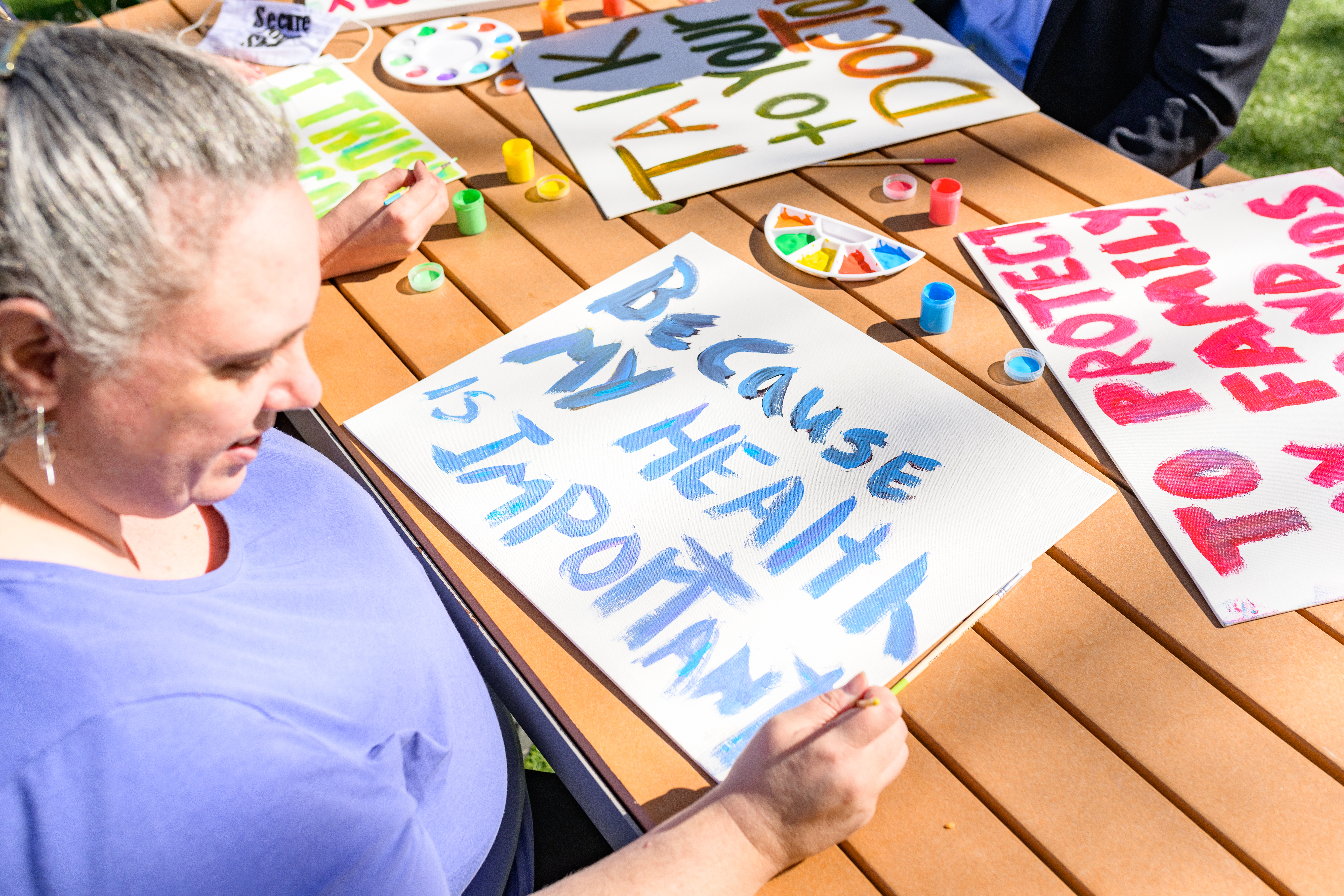
Need help keeping track of your doses? Use our My Vaccination Plan: Staying Up To Date Dose Schedule Worksheet.
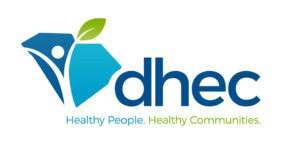
SC Department of Health and Environmental Control
South Carolina Disability Vaccine Access Hotline
Call the Disability Vaccine Access Hotline at 1-800-787-6046
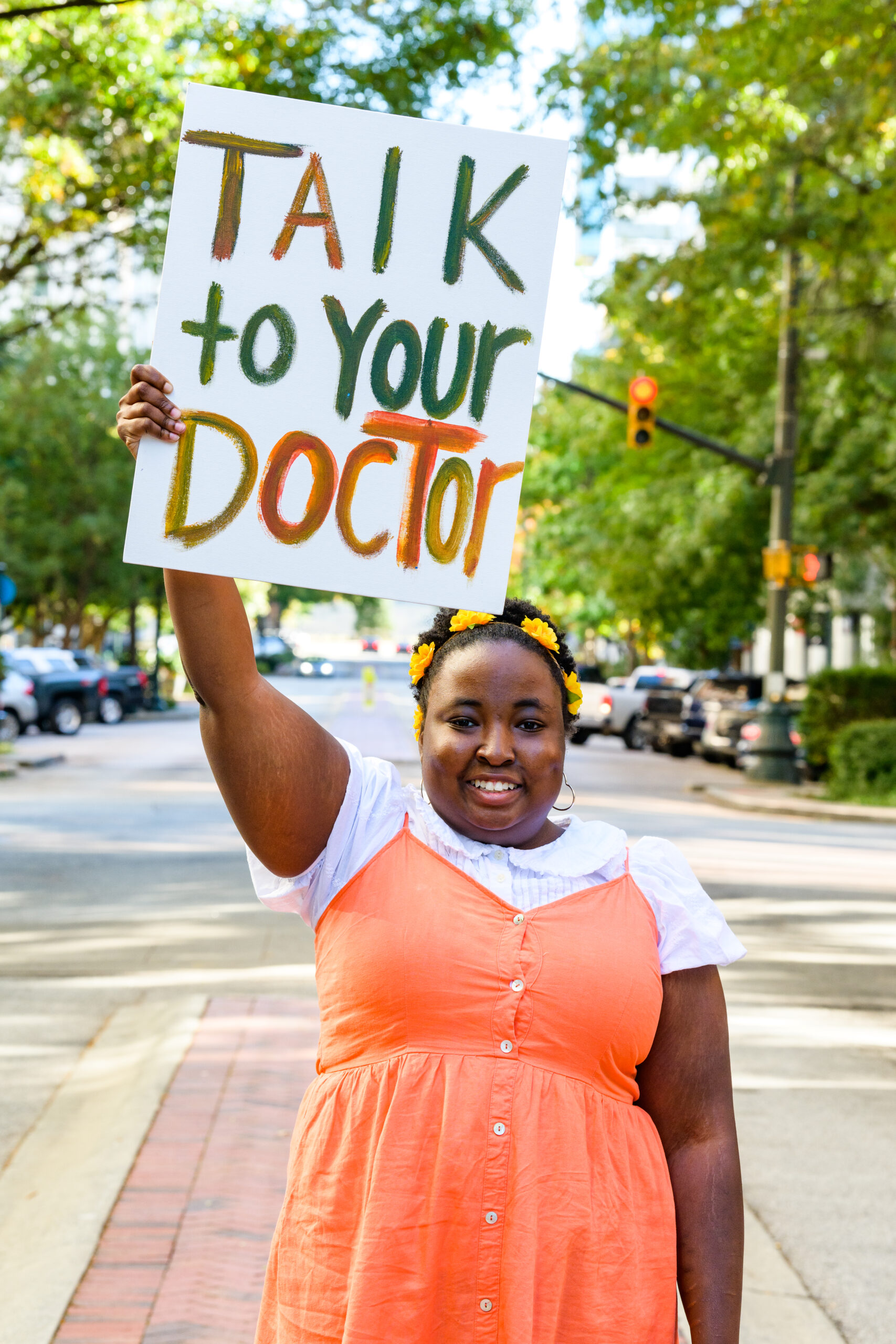
Vaccine Champions
There are champions in South Carolina who have made the decision to get their vaccine to protect themselves and the community. Hear why they made the choice to secure their shot.
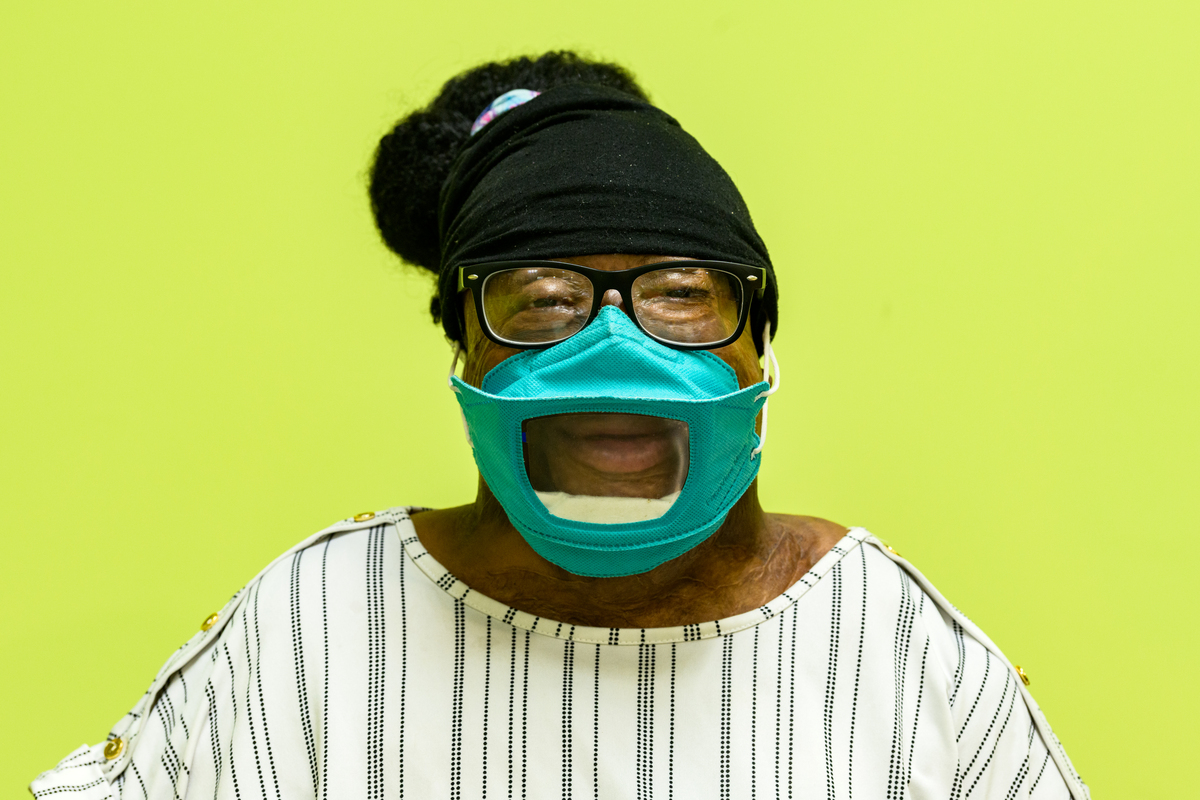
“I got my vaccine because of an underlying health condition as well as to protect my family, my coworkers, and my community. I’m a mom so I wanted to protect myself for my babies.”
Laquanda Clark
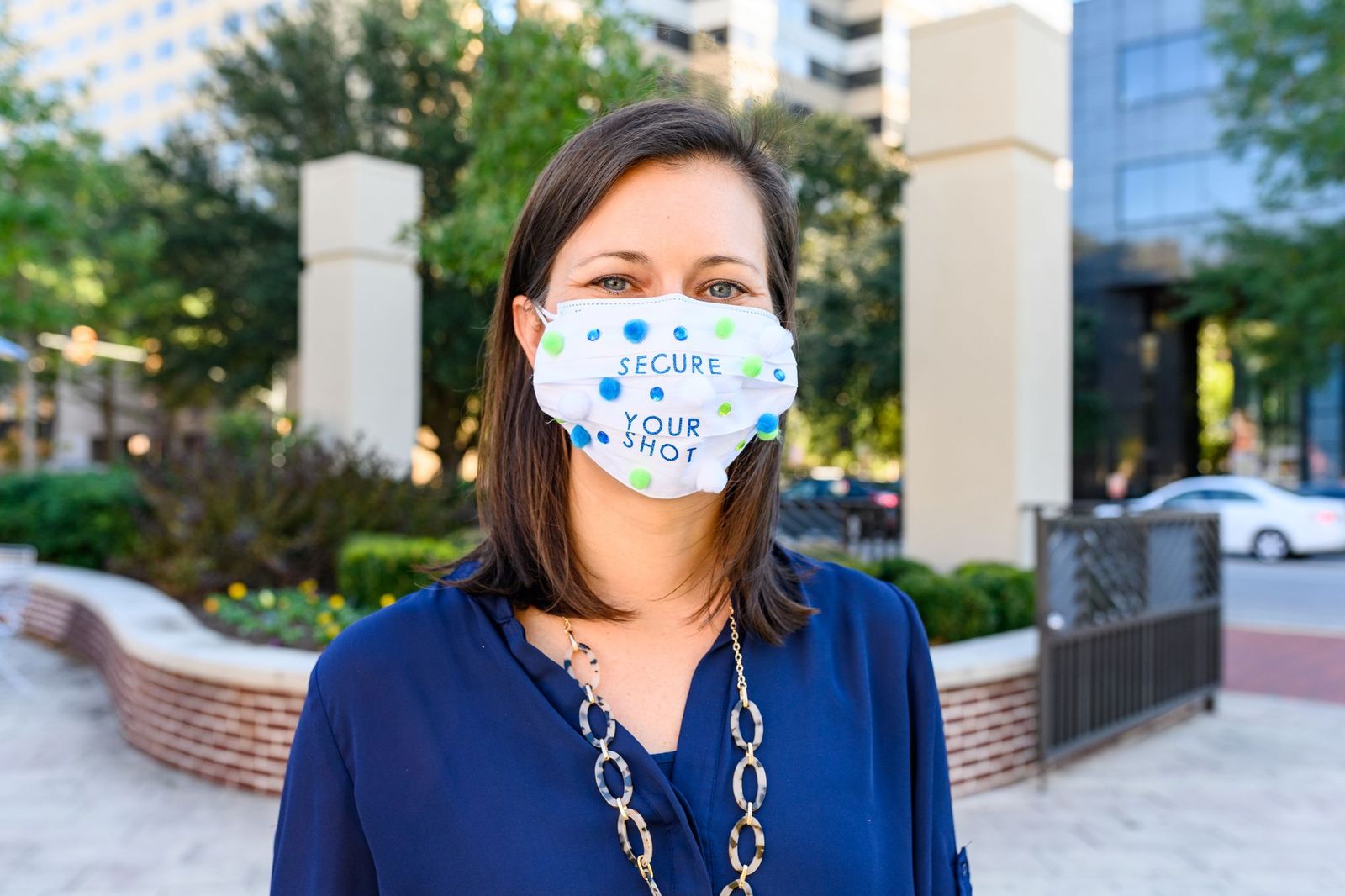
“As a pediatric speech-language pathologist, I have the privilege of working with many wonderful children and their families. Many of the children that I work with for therapy also have underlying medical conditions. For me, getting vaccinated was an easy choice to make, and I was just about “knocking down the door” to get my first shot. I absolutely want to protect myself and my family, and I also want to protect the children and families with whom I work on a daily basis. I am really looking forward to a time when it’s possible to gather and support one another in-person as a community, without having Covid-19 concerns at the forefront of everyone's minds - and am thankful to have access to a vaccine that helps make that a possibility.”
Jen Lutterbie
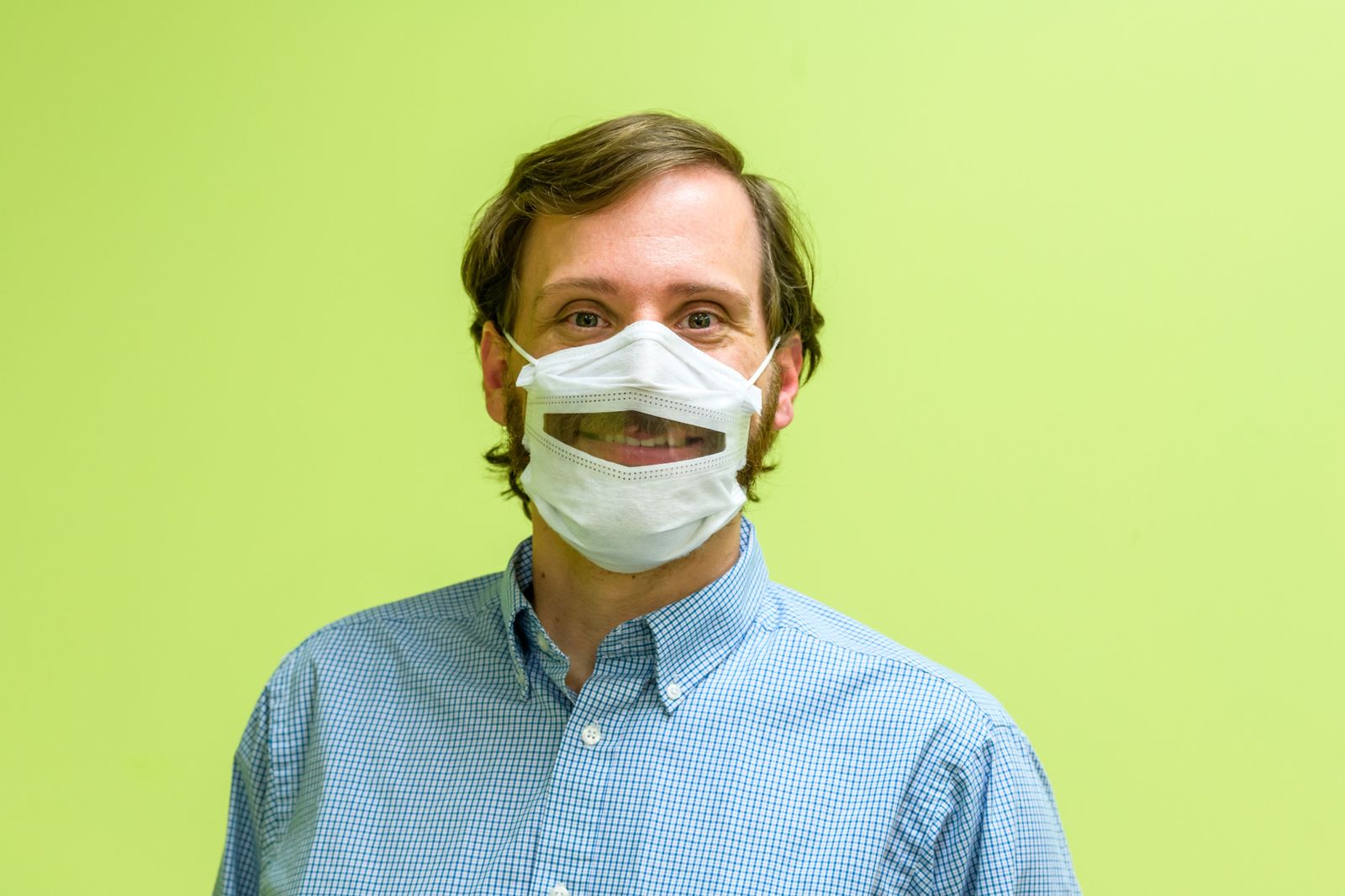
“I chose to get the vaccine as well as the booster because I have family and friends that I am around a lot that could be very negatively affected if they were to get COVID-19.”
Bauer Westeren
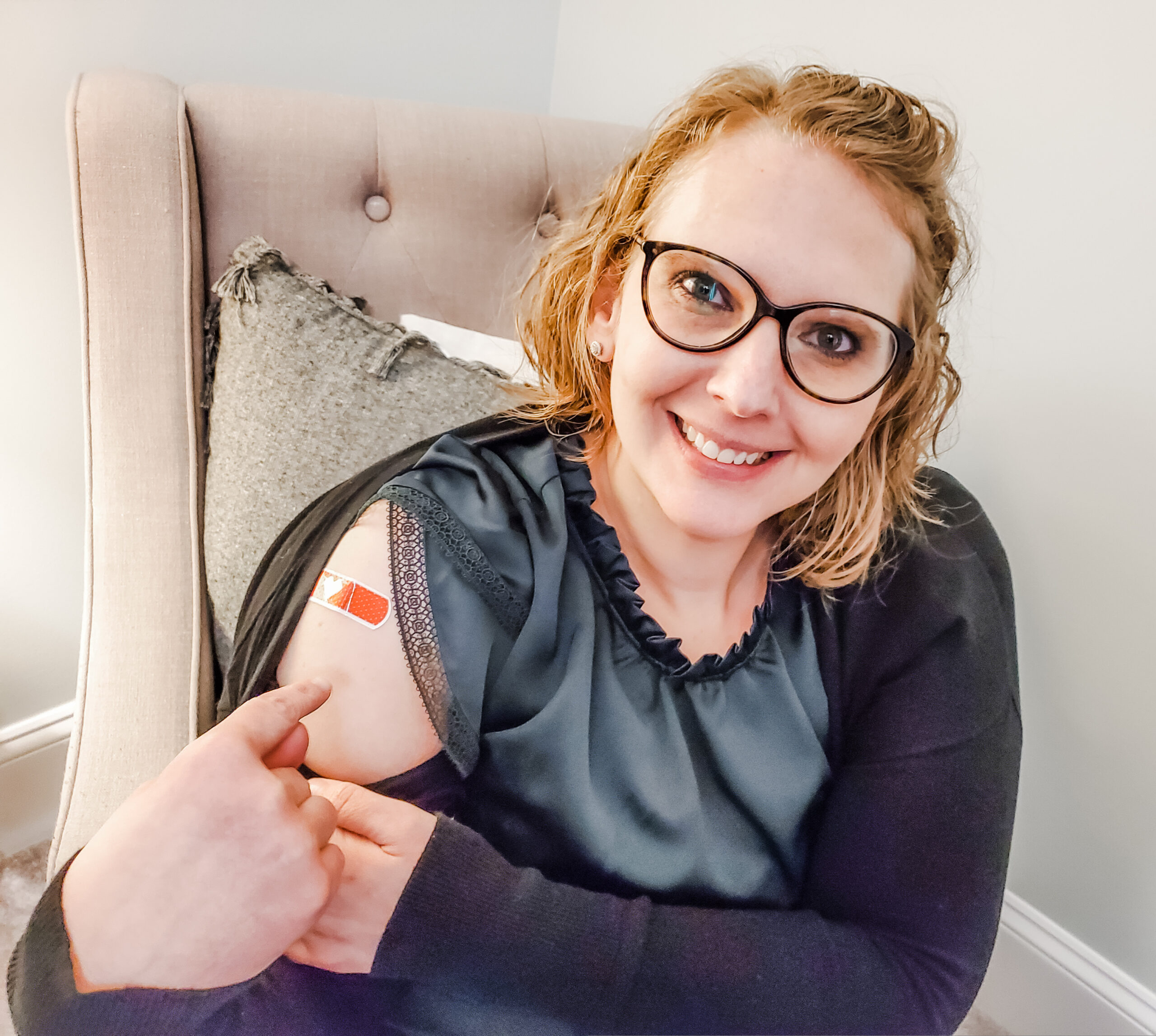
“When considering getting the booster, I didn't think twice about it. Not only do I have complex medical diagnoses, but I am also a mother, a wife, a daughter, a friend, and the CEO of Able SC. I got the booster to protect not only me but those around me, including my family, the workforce under me, and the people we serve and work with daily.”
Kimberly Tissot
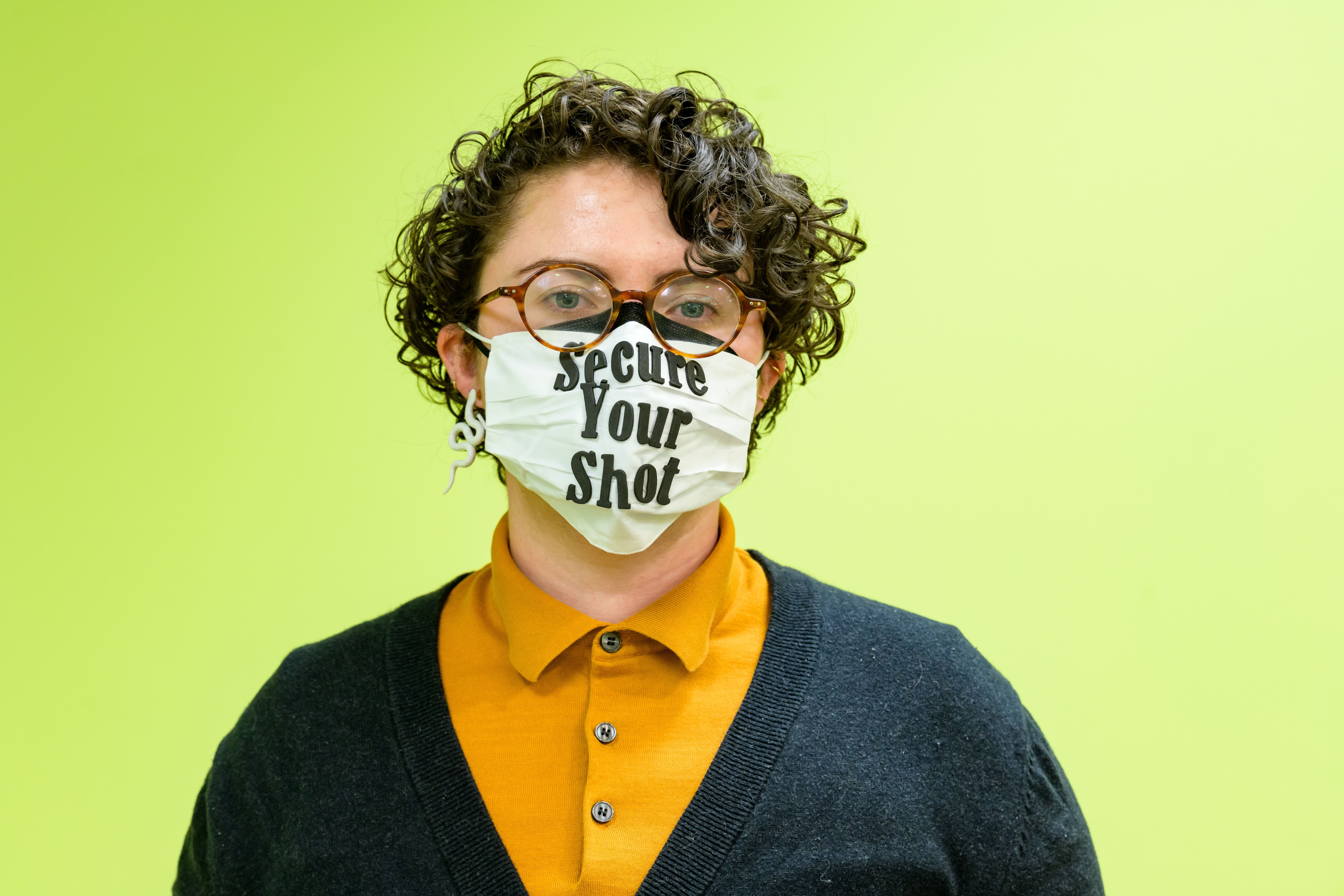
“My decision to get my COVID-19 vaccine booster shot comes from a place of respect for the well-being of my community and myself.”
e.k. hoffman

“I got the shot for my own well-being and so I could more safely interact with my parents, friends, coworkers and the general public.”
Mark Riffle

“As a person with a disability who is also a mother, I got my booster to increase protection for myself and my family.”
Amy Shapley
Resources
Help us spread the word among individuals and friends of the disability community about the importance of the COVID-19 vaccine. Check out the resources below for more information on the vaccine, or download our campaign social media graphics and share them on your social media.
Every 1 in 3 people in South Carolina has some type of disability. Disability intersects with nearly every community, including BIPOC communities. If you are a disabled BIPOC person, you are at higher risk of being very sick or dying from COVID-19 and the flu. Learn more on our page dedicated to the Frequently Asked Questions of disabled BIPOC communities and get resources that impact you!
Report a Denial
Were you denied a vaccine because of your disability? Call Disability Rights South Carolina for assistance immediately!
Call (866) 275-7273 to report a denial.
Sign up for V-Safe
When you get your COVID-19 vaccine, you can sign up for V-Safe. V-Safe is an after-vaccine health checker available online. Signing up for V-Safe will allow you to report to the Centers for Disease Control and Prevention (CDC) how you are feeling after you get your shot. Sharing how you feel after vaccination helps the CDC monitor the safety of the vaccine.
Vaccine Appointment Transportation
You can ride The COMET for free to take you to your vaccine appointment. DART by appointment and Fixed Route services are free if you are traveling to get a vaccine. The V-TRIP and PUP programs are already subsidized so there is no additional discount. Visit the COMET website to view the major vaccination locations and corresponding COMET routes. You may need to show proof of your vaccine appointment to the bus operator.
Uber is offering rides to and from your vaccine through their partner, Go Go Grandparent. To book your ride, visit the Go Go Grandparent website to sign up or call 1 (800) 227-3958 to sign up, then call back and press 0 to speak to an operator and book your ride. These rides are not free.
The South Carolina Disability Vaccine Access Hotline can also help you arrange transportation. You can reach the South Carolina Disability Vaccine Access Hotline at 1-800-787-6046.
Updated 12/14/2023
COVID-19 Vaccine Shareables
How to Host a Barrier-Free Vaccine Clinic
Obligations for Vaccine Providers: Guaranteeing Equitable Access
COVID-19 Treatments for people with disabilities: PaxlovidFact Sheet
Archived Eblasts:
January 2022 Eblast: COVID Risk for People with Intellectual or Developmental Disabilities
March 2022 Eblast: COVID-19 Vaccine Additional Doses
March 2022 Eblast: COVID-19 Vaccines, Pregnancy, & Fertility
April 2022 Eblast: COVID-19, Mental Health, & Long COVID
November 2022: How to use the FAQ
South Carolina Disability Vaccine Access Hotline 1-800-787-6046
The SC Disability Vaccine Access Network is operated by Able South Carolina, Disability Rights South Carolina, South Carolina Developmental Disabilities Council, and The University of South Carolina’s Center for Disability Resources within the School of Medicine. Special thanks to additional partners, Accessibility, Walton Options for Independent Living, and Family Connection of South Carolina. The SC Disability Vaccine Network is funded by the US Department of Health and Human Service’s Administration for Community Living, and the SC Department of Health and Environmental Control.
720 Gracern Rd, Suite 106, Columbia, SC 29210 |
